
Lietaer B
The Mystery of Money - Beyond Greed and Scarcity (forthcoming) Book
tbc., 2023.
@book{Lietaer2000,
title = {The Mystery of Money - Beyond Greed and Scarcity (forthcoming)},
author = {Bernard Lietaer},
year = {2023},
date = {2023-01-01},
urldate = {2023-01-01},
publisher = {tbc.},
keywords = {},
pubstate = {published},
tppubtype = {book}
}
Lietaer B
Monetary Literacy 101 - A Short Introduction to the Why? and How? of Reforming Money working_paper
2022.
@working_paper{Lietaer2010j,
title = {Monetary Literacy 101 - A Short Introduction to the Why? and How? of Reforming Money},
author = {Bernard Lietaer},
url = {https://bernard-lietaer.org/wp-content/uploads/2022/07/Monetary-Literacy-101-Lietaer2010.pdf},
year = {2022},
date = {2022-01-01},
urldate = {2022-01-01},
journal = {Currency Solutions for a Wiser World (Website)},
abstract = {This document presents two introductory texts and eight Question&Answer entries, as well as an extensive glossary of monetary terminology - all originally written by Bernard Lietaer for his now-defunct website “lietaer.com” (launched in 2010). Selection and minor edits were made by Helga Preuß and Leander Bindewald in 2022.},
keywords = {},
pubstate = {published},
tppubtype = {working_paper}
}
Hudon M; Meyer C
Managing Complementary Currencies and the Blockchain Technology: A Conversation with Bernard Lietaer Journal Article
In: International Journal of Community Currency Research, vol. 25, iss. 2, pp. 1–14, 2021, ISBN: 1325-9547.
@article{Hudon2021,
title = {Managing Complementary Currencies and the Blockchain Technology: A Conversation with Bernard Lietaer},
author = {Marek Hudon and Camille Meyer},
url = {https://ijccr.net/vol-25-issue-2-pp-1-14/},
doi = {http://dx.doi.org/10.15133/j.ijccr.2021.0011},
isbn = {1325-9547},
year = {2021},
date = {2021-01-01},
urldate = {2021-01-01},
journal = {International Journal of Community Currency Research},
volume = {25},
issue = {2},
pages = {1--14},
keywords = {},
pubstate = {published},
tppubtype = {article}
}
Silvestre T; Lietaer B
The More Personal and Esoteric Stuff (2008) Book Chapter
In: Krause, Peter (Ed.): pp. 37-51, BoD - Books on Demand, 2020.
@inbook{Silvestre2021a,
title = {The More Personal and Esoteric Stuff (2008)},
author = {Tesa Silvestre and Bernard Lietaer},
editor = {Peter Krause},
url = {https://bernard-lietaer.org/wp-content/uploads/2022/07/2020-The-More-Personal-and-Esoteric-Stuff-2008-Silvestre-Lietaer-annotated.pdf},
year = {2020},
date = {2020-01-01},
urldate = {2020-01-01},
journal = {Bernard Lietaer - Life and Work II},
pages = {37-51},
publisher = {BoD - Books on Demand},
keywords = {},
pubstate = {published},
tppubtype = {inbook}
}
Silvestre T; Lietaer B
The Money System as the Ultimate Acupuncture Point (2008) Book Chapter
In: Krause, Peter (Ed.): pp. 5-34, BoD - Books on Demand, 2020.
@inbook{Silvestre2008,
title = {The Money System as the Ultimate Acupuncture Point (2008)},
author = {Tesa Silvestre and Bernard Lietaer},
editor = {Peter Krause},
url = {https://bernard-lietaer.org/wp-content/uploads/2022/07/2020-The-Money-System-as-the-Ultimate-Acupuncture-Point-2008-Silvestre-Lietaer-annotated.pdf},
year = {2020},
date = {2020-01-01},
urldate = {2020-01-01},
journal = {Bernard Lietaer - Life and Work II},
pages = {5-34},
publisher = {BoD - Books on Demand},
keywords = {},
pubstate = {published},
tppubtype = {inbook}
}
"René Bartiral (Bernard Lietaer)"
From the Golden Age to the Age of Aquarius - The Harmonic Tracé or the Secret of Chavin book_section
2020.
@book_section{Lietaer2020a,
title = {From the Golden Age to the Age of Aquarius - The Harmonic Tracé or the Secret of Chavin},
author = {"René Bartiral (Bernard Lietaer)"},
editor = {Peter Krause},
url = {https://bernard-lietaer.org/wp-content/uploads/2022/07/2020-From-the-Golden-Age-to-the-Age-of-Aquarius-The-Harmonic-Trace-or-the-Secret-of-Chavin-Rene-de-Bartiral-Bernard-Lietaer-annotated.pdf},
year = {2020},
date = {2020-01-01},
urldate = {2020-01-01},
journal = {Bernard Lietaer - Life and Work II},
pages = {79-132},
publisher = {BoD - Books on Demand},
abstract = {Translation from German by Elisa Graf Note: For the French term "Tracé", a wide variety of words are suggested for translation into German, such as ground plan, lines, etc., which would certainly be appropriate at one point or another, but all of which can only be considered a translation for the French word to a limited extent, since the word "Tracé" already has a spiritual dimension that the German words do not reflect. In this translation, therefore, the French term is always used and only sometimes supplemented by a German term},
keywords = {},
pubstate = {published},
tppubtype = {book_section}
}
"René Bartiral (Bernard Lietaer)"
Vom Goldenen Zeitalter zum Zeitalter des Wassermanns - Der Harmonische Tracé oder das Geheimnis von Chavin book_section
2020.
@book_section{Lietaer2020,
title = {Vom Goldenen Zeitalter zum Zeitalter des Wassermanns - Der Harmonische Tracé oder das Geheimnis von Chavin},
author = {"René Bartiral (Bernard Lietaer)"},
editor = {Peter Krause},
url = {https://bernard-lietaer.org/wp-content/uploads/2022/07/2020-Vom-Goldenen-Zeitalter-zum-Zeitalter-des-Wassermanns-Der-Harmonische-Trace-oder-das-Geheimnis-von-Chavin-Lietaer-annotated.pdf},
year = {2020},
date = {2020-01-01},
urldate = {2020-01-01},
journal = {Bernard Lietaer - Leben und Werk II},
publisher = {BoD - Books on Demand},
abstract = {Übersetzt von Helga Preuß Anmerkung: Für den französischen Begriff „Tracé“ werden für die Übersetzung ins Deutsche die verschiedensten Wörter wie Grundrissplanung, Linienführung usw. vorgeschlagen, die sicher an der einen oder anderen Stelle auch passend wären, aber alle nur bedingt als Übersetzung für das französische Wort gelten können, da dem Wort „Tracé“ schon eine spirituelle Dimension eigen ist, die die deutschen Wörter nicht wiedergeben. In dieser Übersetzung wird daher immer der frz. Begriff verwendet und nur manchmal durch einen deutschen Begriff ergänzt werden.},
keywords = {},
pubstate = {published},
tppubtype = {book_section}
}
Godau J; Lietaer B
Notes on Bernard Lietaer's Master Thesis book_section
2020.
@book_section{Godau2020a,
title = {Notes on Bernard Lietaer's Master Thesis },
author = {Jürgen Godau and Bernard Lietaer},
editor = {Peter Krause},
url = {https://bernard-lietaer.org/wp-content/uploads/2022/07/2020-Notes-on-Bernard-Lietaers-Master-Thesis-Financial-Management-of-Foreign-Exchange-Godau-Lietaer-annotated.pdf},
year = {2020},
date = {2020-01-01},
urldate = {2020-01-01},
journal = {Bernard Lietaer - Life and Work II},
pages = {53-65},
publisher = {BoD - Books on Demand},
keywords = {},
pubstate = {published},
tppubtype = {book_section}
}
Godau J; Lietaer B
Anmerkungen zu Bernard Lietaers Master-Thesis „Financial Management of Foreign Exchange” book_section
2020.
@book_section{Godau2020,
title = {Anmerkungen zu Bernard Lietaers Master-Thesis „Financial Management of Foreign Exchange”},
author = {Jürgen Godau and Bernard Lietaer},
editor = {Peter Krause},
url = {https://bernard-lietaer.org/wp-content/uploads/2022/07/2020-Anmerkungen-zu-Bernard-Lietaers-Master-Thesis-„Financial-Management-of-Foreign-Exchange-Godau-Lietaer-annotated.pdf},
year = {2020},
date = {2020-01-01},
urldate = {2020-01-01},
journal = {Bernard Lietaer - Leben und Werk II},
pages = {53-65},
publisher = {BoD - Books on Demand},
keywords = {},
pubstate = {published},
tppubtype = {book_section}
}
Wuttke T M; Lietaer B
Was Geld und Archetypen miteinander zu tun haben working_paper
2020.
@working_paper{Wuttke2020,
title = {Was Geld und Archetypen miteinander zu tun haben},
author = {Theresia Maria Wuttke and Bernard Lietaer},
url = {https://www.theos-consulting.de/was-geld-und-archetypen-miteinander-zu-tun-haben/
https://bernard-lietaer.org/wp-content/uploads/2022/09/Was-Geld-und-Archetypen-miteinander-zu-tun-haben-Theos-Consulting-AG.pdf},
year = {2020},
date = {2020-01-01},
urldate = {2020-01-01},
institution = {Theos Consulting AG},
keywords = {},
pubstate = {published},
tppubtype = {working_paper}
}
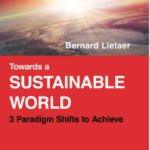
Lietaer B; Preuss H; Hudon M; Spiegeleer K; Legat D; Sherburne C
Towards a Sustainable World - 3 Paradigms Shifts to Achieve Book
Delta Institute, 2019.
@book{Lietaer2019,
title = {Towards a Sustainable World - 3 Paradigms Shifts to Achieve},
author = {Bernard Lietaer and Helga Preuss and Marek Hudon and Kristof Spiegeleer and Dieter Legat and Cary Sherburne},
year = {2019},
date = {2019-01-01},
urldate = {2019-01-01},
pages = {102},
publisher = {Delta Institute},
keywords = {},
pubstate = {published},
tppubtype = {book}
}
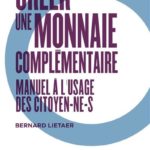
Lietaer B
Créer une monnaie complémentaire: manuel à l'usage des citoyen-ne-s Book
Bord de l'Eau - La Bibliotheque Du Mauss, 2018, ISBN: 2356875557.
@book{Lietaer2018,
title = {Créer une monnaie complémentaire: manuel à l'usage des citoyen-ne-s},
author = {Bernard Lietaer},
isbn = {2356875557},
year = {2018},
date = {2018-01-01},
urldate = {2018-01-01},
pages = {201},
publisher = {Bord de l'Eau - La Bibliotheque Du Mauss},
abstract = {Unique en son genre, ce manuel est un guide pratique à destination de toutes les personnes impliquées dans la création et la gestion de monnaies complémentaires et citoyennes. De tels projets foisonnent depuis quelques années sous des formes diverses, en lien avec l'intérêt grandissant pour les questions liées à la transition écologique et sociale. En France, aujourd'hui, on compte une centaine de monnaies dites « citoyennes », à vocation locale affirmée, dans des villes ou territoires de tailles diverses, et sans doute autant sont en gestation. Par ailleurs, de plus en plus d'acteurs (citoyens, associations, collectivités territoriales, entreprises...) réfléchissent à des monnaies plus spécifiquement orientées vers tel ou tel sujet (la réduction des déchets, la vie de quartier, le développement de la culture...). Or, dans ces projets passionnants, beaucoup d'aspects doivent avoir été anticipés et maints écueils doivent être évités. Ce manuel cherche à présenter des pistes pour repérer certaines difficultés et pour les contourner, mais aussi des propositions pour renforcer la solidité et la pérennité des projets. Il tente de balayer l'ensemble des questions qui se posent, avec des exemples d'organisation, des propositions de manière de faire, des listes de points à aborder pour chaque aspect du projet. Il ne prétend pas à l'exhaustivité ni à procurer une manière unique de faire mais, en se basant sur de nombreuses expériences, à dessiner des possibles pour que la monnaie prenne corps et atteigne ses objectifs. L'auteur principal de ce guide, Bernard Lietaer, est aussi un des principaux défenseurs, et peut être le plus connu, des monnaies locales : économiste renommé, ancien responsable de la Banque centrale de Belgique (où il participa à la création de l'euro), ancien opérateur de marché, il travaille depuis plus de dix ans à comprendre et promouvoir les monnaies locales en tant qu'outil d'action publique, auprès des autorités politiques comme des acteurs citoyens. Le manuel, rédigé à l'origine pour le gouvernement flamand, a été ici réactualisé, et renforcé d'une analyse juridique et fiscale spécifique à la France : il est ainsi aujourd'hui enfin disponible en français.},
keywords = {},
pubstate = {published},
tppubtype = {book}
}
Lietaer B; Belgin S M
Dinheiro para um mundo novo Journal Article
In: Piseagrama, vol. 10, pp. 52-61, 2017.
@article{Lietaer2017,
title = {Dinheiro para um mundo novo},
author = {Bernard Lietaer and Stephen M. Belgin},
url = {https://bernard-lietaer.org/wp-content/uploads/2022/07/2017-Dinheiro-para-um-mundo-novo-Lietaer-Belgin-annotated.pdf},
year = {2017},
date = {2017-01-01},
urldate = {2017-01-01},
journal = {Piseagrama},
volume = {10},
pages = {52-61},
keywords = {},
pubstate = {published},
tppubtype = {article}
}
Lietaer B
Possibly Sharīah-Compatible global currency to stabilize the monetary system Journal Article
In: Journal of King Abdulaziz University, Islamic Economics, vol. 30, iss. 2, pp. 47-58, 2017, ISSN: 16584244.
@article{Lietaer2017a,
title = {Possibly Sharīah-Compatible global currency to stabilize the monetary system},
author = {Bernard Lietaer},
url = {https://bernard-lietaer.org/wp-content/uploads/2022/07/2017-Possibly-Shariah-Compatible-global-currency-to-stabilize-the-monetary-system-Lietaer-annotated.pdf},
doi = {10.4197/Islec.30-2.4},
issn = {16584244},
year = {2017},
date = {2017-01-01},
urldate = {2017-01-01},
journal = {Journal of King Abdulaziz University, Islamic Economics},
volume = {30},
issue = {2},
pages = {47-58},
abstract = {The international monetary system is structurally instable. Furthermore, all official currencies in the world today are created through bank debt, and therefore automatically involve interest. A systemic way to improve stability would be to diversify the types of currencies and the agents who create them. The proposed 'Trade Reference Currency' would be a global, purely digital currency, fully backed by a standardized basket of the major commodities in world trade such as oil, copper, gold, silver, coffee and cocoa. The storage costs of that basket would be covered by a demurrage fee paid by the bearer of the currency. Because it fits the existing legislations on countertrade (international barter), it would not require any new international agreements to start it. In addition to more stability for the whole system, this currency would also operate counter cyclically to the business cycle, realign financial interest with long-term thinking, and possibly be Shariáh-compatible.},
keywords = {},
pubstate = {published},
tppubtype = {article}
}
Lietaer B; David A B
(Draft) Unconditional Basic Income Smart Tokens working_paper
2017.
@working_paper{Lietaer2017c,
title = {(Draft) Unconditional Basic Income Smart Tokens},
author = {Bernard Lietaer and Arie Ben David},
url = {https://bernard-lietaer.org/wp-content/uploads/2022/07/2017-Draft-Unconditional-Basic-Income-Smart-Tokens-Lietaer-David-annotated.pdf},
year = {2017},
date = {2017-01-01},
urldate = {2017-01-01},
pages = {2-4},
abstract = {Concept note, unfinished and previously unpublished.},
keywords = {},
pubstate = {published},
tppubtype = {working_paper}
}
Lietaer B
Les monnaies complémentaires à la rescousse d'un système instable Journal Article
In: Politique Internationale, vol. 151, iss. 1, pp. 49-61, 2016.
@article{Lietaer2016a,
title = {Les monnaies complémentaires à la rescousse d'un système instable},
author = {Bernard Lietaer},
url = {https://bernard-lietaer.org/wp-content/uploads/2022/07/2016-Les-monnaies-complementaires-a-la-Rescousse-dun-systeme-instable-Lietaer-annotated.pdf},
year = {2016},
date = {2016-01-01},
urldate = {2016-01-01},
journal = {Politique Internationale},
volume = {151},
issue = {1},
pages = {49-61},
keywords = {},
pubstate = {published},
tppubtype = {article}
}
Lietaer B
Complementary Currencies to the Rescue of an Unstable System Journal Article
In: Politique Internationale, vol. 151, iss. Spring, pp. 45-55, 2016.
@article{Lietaer2016b,
title = {Complementary Currencies to the Rescue of an Unstable System},
author = {Bernard Lietaer},
url = {https://bernard-lietaer.org/wp-content/uploads/2022/07/2016-Complementary-Currencies-to-the-Rescue-of-an-Unstable-System-Lietaer-annotated.pdf},
year = {2016},
date = {2016-01-01},
urldate = {2016-01-01},
journal = {Politique Internationale},
volume = {151},
issue = {Spring},
pages = {45-55},
keywords = {},
pubstate = {published},
tppubtype = {article}
}

Lietaer B; Dunne J
Réinventons la monnaie! Book
Éditions Yves Michel, 2016, ISBN: 2364290805.
@book{Lietaer2016,
title = {Réinventons la monnaie!},
author = {Bernard Lietaer and Jacqui Dunne},
isbn = {2364290805},
year = {2016},
date = {2016-01-01},
urldate = {2016-01-01},
pages = {297},
publisher = {Éditions Yves Michel},
abstract = {Notre vision monétaire archaïque se trouve au croisement des débâcles économiques, sociales et écologiques contemporaines. C’est donc une conception radicalement nouvelle de la monnaie que deux experts internationaux proposent dans cet ouvrage. Dans un style très accessible, les auteurs apportent des solutions pour une transition vers un avenir paisible, de partage, prospère et durable. Car oui : c’est possible ! Démontant les limites de notre système monétaire actuel avec brio, ils partagent ensuite leur enquête sur des avancées sociales, technologiques et monétaires éprouvées qui peuvent résoudre un grand nombre de problèmes. Ils en tirent des leçons, tant pour les citoyens que pour les gouvernants et les chefs d’entreprise, propres à dynamiser de nouveaux comportements et à créer ainsi le monde plus sain auquel nous aspirons. Des propositions fascinantes de créativité et d’efficacité sont déjà expérimentées dans de nombreux pays : monnaies locales ou complémentaires, Wir, civic, saber, C3, nouvelles banques…Ces expériences relatées en détail amènent à des modèles sociétaux profondément novateurs. Circulation de la monnaie, relocalisation et dynamisation de l’économie, systèmes d’échanges de services, rôle des citoyens, gouvernance, créations d’emplois, éducation, santé … tout a changé.},
keywords = {},
pubstate = {published},
tppubtype = {book}
}
Stodder J; Lietaer B
The Macro-Stability of Swiss WIR-Bank Credits: Balance, Velocity, and Leverage Journal Article
In: Comparative Economic Studies 2016 58:4, vol. 58, iss. 4, pp. 570-605, 2016, ISSN: 1478-3320.
@article{Stodder2016,
title = {The Macro-Stability of Swiss WIR-Bank Credits: Balance, Velocity, and Leverage},
author = {James Stodder and Bernard Lietaer},
url = {https://link.springer.com/article/10.1057/s41294-016-0001-5
https://bernard-lietaer.org/wp-content/uploads/2022/07/2016-The-Macro-Stability-of-Swiss-WIR-Bank-Credits-Balance-Velocity-and-Leverage-Stodder-Lietaer-annotated.pdf},
doi = {10.1057/S41294-016-0001-5},
issn = {1478-3320},
year = {2016},
date = {2016-01-01},
urldate = {2016-01-01},
journal = {Comparative Economic Studies 2016 58:4},
volume = {58},
issue = {4},
pages = {570-605},
publisher = {Palgrave},
abstract = {Since 1934, the Swiss Wirtschaftsring/Cercle Économique (Economic Circle), now the WIR-Bank, has issued its own currency, not backed by Swiss Francs. Turnover in WIR is countercyclical: firms use it more in a recession. A money-in-the-production-function model implies that this spending arises through larger WIR Balances for larger firms, but greater WIR Velocity for smaller ones. Panel data by industrial sector confirm this pattern, similar to commercial trade credits, a major source of non-bank credit. The countercyclical multiplier on WIR expenditures is highly leveraged, and its impact on the Swiss Economy greater than its turnover would suggest.},
keywords = {},
pubstate = {published},
tppubtype = {article}
}

Lietaer B; Belgin S M
Új pénz egy új világnak Book
Imi Print Kft., 2016, ISBN: 9789631270440.
@book{BernardLietaer2016,
title = {Új pénz egy új világnak},
author = {Bernard Lietaer and Stephen M. Belgin},
isbn = {9789631270440},
year = {2016},
date = {2016-01-01},
urldate = {2016-01-01},
publisher = {Imi Print Kft.},
abstract = {A könyv a kiegészítő valutákat, más néven közösségi pénzeket mutatja be. Ezeknek az a funkciója, hogy a nemzeti valután kívül olyan más pénz is legyen a gazdaságban, ami megvéd minket a következő válság vagy a magas hitelezési kamatok hatásaitól.
Számos történelmi példán keresztül szemlélteti, hogy már Egyiptomban és a középkorban is nagy sikerrel használtak közösségi pénzeket. Jelenleg is számos kiegészítő valuta van Svájcban, Angliában, Amerikában, Németországban és Japánban is, utóbbiban egyszerre több tucat különféle rendszer működik.
A közösségi pénzek bevezetéséhez a legtöbb esetben nem kellenek új adók vagy milliárdos kormányzati kiadások. Az ilyen típusú pénz segít csökkenteni a munkanélküliséget, az egészségügyi és oktatási kiadásokat, közelebb hozza egymáshoz az embereket, akik használják.
"Véget vethetünk a környezetünket fenyegető veszélyeknek és sokat tehetünk a környezetünk helyreállításáért. Segíthetünk abban, hogy mindenkinek legyen értelmes munkája, és teremthetünk olyan lehetőségeket, amelyek kitágítják és megtöltik élettel a körülöttünk lévő világot. Hatékony módszereket találhatnánk a komolyabb városi és vidéki problémák kezelésére, illetve kielégíthetnénk a fejlődő és fejlett országok sokféle, és gyakran eltérő igényeit. Létre tudnánk hozni egy jobb világot, ahol az élet és minden élőlény kivirul. Ez nem idealista álom, hanem inkább konkrét cél, amely még a mi életünkben elérhető."},
keywords = {},
pubstate = {published},
tppubtype = {book}
}
Számos történelmi példán keresztül szemlélteti, hogy már Egyiptomban és a középkorban is nagy sikerrel használtak közösségi pénzeket. Jelenleg is számos kiegészítő valuta van Svájcban, Angliában, Amerikában, Németországban és Japánban is, utóbbiban egyszerre több tucat különféle rendszer működik.
A közösségi pénzek bevezetéséhez a legtöbb esetben nem kellenek új adók vagy milliárdos kormányzati kiadások. Az ilyen típusú pénz segít csökkenteni a munkanélküliséget, az egészségügyi és oktatási kiadásokat, közelebb hozza egymáshoz az embereket, akik használják.
"Véget vethetünk a környezetünket fenyegető veszélyeknek és sokat tehetünk a környezetünk helyreállításáért. Segíthetünk abban, hogy mindenkinek legyen értelmes munkája, és teremthetünk olyan lehetőségeket, amelyek kitágítják és megtöltik élettel a körülöttünk lévő világot. Hatékony módszereket találhatnánk a komolyabb városi és vidéki problémák kezelésére, illetve kielégíthetnénk a fejlődő és fejlett országok sokféle, és gyakran eltérő igényeit. Létre tudnánk hozni egy jobb világot, ahol az élet és minden élőlény kivirul. Ez nem idealista álom, hanem inkább konkrét cél, amely még a mi életünkben elérhető."
Lietaer B
Pourquoi les monnaies complémentaires sont-elles nécessaires à la stabilité économique? La preuve scientifique. book_section
2016.
@book_section{Lietaer2016c,
title = {Pourquoi les monnaies complémentaires sont-elles nécessaires à la stabilité économique? La preuve scientifique.},
author = {Bernard Lietaer},
editor = {Jean-Baptiste Foucauld},
url = {https://bernard-lietaer.org/wp-content/uploads/2022/07/2016-Pourquoi-les-monnaies-complementaires-sont-elles-necessaires-a-la-stabilite-economique-La-preuve-scientifique.-Lietaer-annotated.pdf},
isbn = {9782705690625},
year = {2016},
date = {2016-01-01},
urldate = {2016-01-01},
journal = {Peut-on apprivoiser l'argent aujourd'hui?},
pages = {1-23},
publisher = {Hermann},
keywords = {},
pubstate = {published},
tppubtype = {book_section}
}
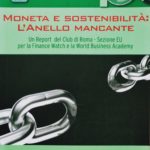
Lietaer B; Arnsperger C; Goerner S J; Brunnhuber S
Moneta e Sostenibilità - L'Anello Mancante Book
Edizioni Andromeda, 2015, ISBN: 978 88 683207 44.
@book{nokey,
title = {Moneta e Sostenibilità - L'Anello Mancante},
author = {Bernard Lietaer and Christian Arnsperger and Sally J. Goerner and Stefan Brunnhuber },
isbn = {978 88 683207 44},
year = {2015},
date = {2015-09-17},
publisher = {Edizioni Andromeda},
keywords = {},
pubstate = {published},
tppubtype = {book}
}
Roio D; Sachy M; Lucarelli S; Lietaer B; Bria F
Design of Social Digital Currency (D-CENT Project) working_paper
2015.
@working_paper{Roio2015,
title = {Design of Social Digital Currency (D-CENT Project)},
author = {Denis Roio and Marco Sachy and Stefano Lucarelli and Bernard Lietaer and Francesca Bria},
url = {https://bernard-lietaer.org/wp-content/uploads/2022/07/2015-Design-of-Social-Digital-Currency-Roio-et-al-annotated.pdf},
year = {2015},
date = {2015-01-01},
urldate = {2015-01-01},
journal = {d-cent Project},
pages = {1-60},
abstract = {D-CENT aims at developing large-scale collective platforms to support citizen empowerment. As shown by the preliminary considerations from the first round of interviews with alternative and complementary system managers in Spain, Finland and Iceland (D1.2 and D3.4), decentralised and privacy aware digital infrastructures are needed to allow institutions to integrate social feedback from the citizens, leveraging the potential of the extended society and social experts to improve democracy and many aspects of our society. In turn, the experimentation on the Digital Social Currency Pilots in D-CENT can be conceived as an open-source approach to decentralized complementary currency design, which becomes ever more relevant where pilot communities are already actively designing tools for collective engagement and decision making on monetary economic matters affecting their communities.},
keywords = {},
pubstate = {published},
tppubtype = {working_paper}
}
"René Bartiral (Bernard Lietaer)" ; Vervoordt A; Miki T
Proportio – Harmonia Universalis: Past, Present and Future book_section
2015.
@book_section{Bartiral2015,
title = {Proportio – Harmonia Universalis: Past, Present and Future},
author = {"René Bartiral (Bernard Lietaer)" and Axel Vervoordt and Tatsuro Miki},
editor = {Axel Vervoordt and Tatsuro Miki},
url = {https://bernard-lietaer.org/wp-content/uploads/2022/08/PROPORTIO_-dialogue-with-Rene-de-Bartiral.pdf},
year = {2015},
date = {2015-01-01},
urldate = {2015-01-01},
journal = {Proportio},
pages = {17-37},
publisher = {MER. Paper Kunsthalle},
keywords = {},
pubstate = {published},
tppubtype = {book_section}
}
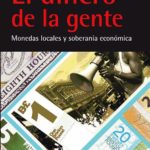
Lietaer B; Rogers J; Kennedy M
El dinero de la gente - Monedas locales y soberanía económica Book
XES/Icaria Editorial, 2015.
@book{Lietaer2015,
title = {El dinero de la gente - Monedas locales y soberanía económica},
author = {Bernard Lietaer and John Rogers and Margrit Kennedy},
year = {2015},
date = {2015-01-01},
urldate = {2015-01-01},
publisher = {XES/Icaria Editorial},
abstract = {¿Cómo sostener la economía local en un sistema global inestable, injusto y especulativo? Este libro muestra cómo las monedas locales pueden transformar la vida y el bienestar de las personas. El dinero de la gente es una herramienta de la economía social y cooperativa que potencia el capital social para cubrir necesidades locales y para crear un desarrollo humano que compense la deshumanización de la globalización. Desde la eclosión de la crisis financiera, se ha generado una ola de experimentación con monedas locales y regionales en todo el mundo: en Grecia, Francia, Holanda y Alemania; las monedas de Brixton y Bristol, en Inglaterra, están floreciendo; los bancos de tiempo viven una explosión en Estados Unidos; en España han surgido numerosas iniciativas de lanzamiento de monedas locales en los últimos cinco años; en Brasil la experiencia comunitaria del Banco Palmas se ha extendido por todo el país. Estos nuevos proyectos se suman a reconocidas y consolidadas experiencias como la del Wir suizo, una moneda complementaria que supone el 1% del PIB del país alpino. Tres expertos, con décadas de experiencia, se han unido para ofrecer una guía práctica para comprender y desarrollar las monedas regionales, y aportar una propuesta efectiva y probada para combatir la crisis en que nos ha sumido la economía neoliberal.},
keywords = {},
pubstate = {published},
tppubtype = {book}
}

Lietaer B; Arnsperger C; Goerner S J; Brunnhuber S
Pénz és fenntarthatóság - A hiányzó láncszem Book
Image Kft., 2015, ISBN: 978-963-85054-1-5.
@book{Lietaer2015a,
title = {Pénz és fenntarthatóság - A hiányzó láncszem},
author = {Bernard Lietaer and Christian Arnsperger and Sally J. Goerner and Stefan Brunnhuber},
isbn = {978-963-85054-1-5},
year = {2015},
date = {2015-01-01},
urldate = {2015-01-01},
publisher = {Image Kft.},
abstract = {A könyv egy jelentés mely közérthetően nyilvánosságra hozza pénzügyi rendszerünk azon sajátosságait, amelyek a fenntarthatóság (mind környezeti, mind társadalmi) koncepciójával összeférhetetlenek. Továbbá külön az állam, és külön a magánszféra által végrehajtható megoldási javaslatokkal szolgál. Az olvasmány egyaránt ajánlott üzletembereknek, szakembereknek, döntéshozóknak, valamint a gazdaság, illetve pénzügyek és/vagy fenntarthatóság ügyei iránt érdeklődők számára.},
keywords = {},
pubstate = {published},
tppubtype = {book}
}
Árpa S; Lietaer B
PEŇAŽNÝ SYSTÉM SA ZAKAŽDÝM ZMENIL AŽ PO VOJNE magazine_article
2015.
@magazine_article{nokey,
title = {PEŇAŽNÝ SYSTÉM SA ZAKAŽDÝM ZMENIL AŽ PO VOJNE},
author = {Stanislav Árpa and Bernard Lietaer},
url = {https://bernard-lietaer.org/wp-content/uploads/2022/09/ZemVek-Slovak.pdf},
year = {2015},
date = {2015-01-01},
urldate = {2015-01-01},
journal = {ZEM & VEK (July)},
pages = {40-45},
keywords = {},
pubstate = {published},
tppubtype = {magazine_article}
}
Stodder J; Lietaer B
WIR Currency - Reinventing Social Exchange book_section
2015.
@book_section{Stodder2015,
title = {WIR Currency - Reinventing Social Exchange},
author = {James Stodder and Bernard Lietaer},
editor = {David Bollier and Silke Helfrich},
url = {https://bernard-lietaer.org/wp-content/uploads/2022/09/Commoning-EN.pdf},
year = {2015},
date = {2015-01-01},
urldate = {2015-01-01},
journal = {Patterns of Commoning},
pages = {204-207},
publisher = {Off The Common Books},
keywords = {},
pubstate = {published},
tppubtype = {book_section}
}
Lietaer B
Why an Economy needs more than one Currency: the Scientific Evidence book_section
2015.
@book_section{Lietaer2015c,
title = {Why an Economy needs more than one Currency: the Scientific Evidence},
author = {Bernard Lietaer},
editor = {J. Imre Rudas},
url = {https://bernard-lietaer.org/wp-content/uploads/2022/09/Mathematical-Models-2015.pdf},
year = {2015},
date = {2015-01-01},
urldate = {2015-01-01},
journal = {Mathematical Models and Computational Methods},
volume = {55},
pages = {115-123},
publisher = {AMCSE, MMMAS, EAS},
keywords = {},
pubstate = {published},
tppubtype = {book_section}
}

Lietaer B; Snick A; Kampers E
Maak je buurt uitmuntend! Book
Vlaamse Overheid, 2014.
@book{Lietaer2014,
title = {Maak je buurt uitmuntend!},
author = {Bernard Lietaer and Anne Snick and Edgar Kampers},
editor = {Lieven Maesschalck and Hugo Wanner},
url = {https://bernard-lietaer.org/wp-content/uploads/2022/07/2014-Maak-je-buurt-uitmuntend-Lietaer-Snick-Kampers-annotated.pdf},
year = {2014},
date = {2014-01-01},
urldate = {2014-01-01},
pages = {80},
publisher = {Vlaamse Overheid},
keywords = {},
pubstate = {published},
tppubtype = {book}
}
Lietaer B
Why Complementary Currencies Are Necessary to Financial Stability book_section
2014.
@book_section{Lietaer2014b,
title = {Why Complementary Currencies Are Necessary to Financial Stability},
author = {Bernard Lietaer},
editor = {John H. Clippinger and David Bollier},
isbn = {1937146588},
year = {2014},
date = {2014-01-01},
urldate = {2014-01-01},
journal = {From Bitcoin to Burning Man and beyond: the quest for identity and autonomy in a digital society},
pages = {200},
publisher = {Off the Commons Books},
abstract = {"From Bitcoin to Burning Man and Beyond: The Quest for Identity and Autonomy in a Digital Society explores a new generation of digital technologies and currencies, strategies and projects that are re-imagining the very foundations of identity, governance, trust and social organization. The fifteen essays of this book stake out the foundations of a new future--a future of open Web standards and data commons, a society of decentralized autonomous organizations, a world of trustworthy digital currencies and self-organized and expressive communities like Burning Man. Among the contributors are Alex "Sandy" Pentland of the M.I.T. Human Dynamics Laboratory, former FCC Chairman Reed E. Hundt, long-time IBM strategist Irving Wladawsky-Berger, monetary system expert Bernard Lietaer, journalist Jonathan Ledgard and H-Farm cofounder Maurizio Rossi"--Back cover. Acknowledgments -- Introduction -- Part I: Charting the new ecology of data. 1. Social physics and the human centric society / by Alex Pentland -- 2. Why self-sovereignty matters / by John H.Clippinger -- 3. The next great internet disruption: authority and governance / by David Bollier and John H. Clippinger -- 4. The new mestieri culture of artisans / by Maurizio Rossi -- Burning Man: the pop-up of self-governing individualists / by Peter Hirshberg -- Part II: Digital currrencies as instruments for social change 6. The internet of money / by Irving Wladawsky-Berger -- 7. Why complementary currencies are necessary to financial stability: the scientific evidence / by Bernard Lietaer -- 8. Africa, digital identity and the beginning of the end for coins / by Jonathan Ledgard -- 9. Ven and the nature of money / by Stan Stalnaker -- 10. Green coins: using digital currency to build the new power platform / by Reed E. Hundt, Jeffrey Schub and Joseph R. Schottenfeld -- Part III: Open architectures for an open society. 11. Organic governance through the logic of holonic systems / by Mihaela Ulieru -- 12. The algorithmic governance of common-pool resources / by Jeremy Pitt and Ada Diaconescu -- 13. The ID3 Open Mustard Seed Platform / by Thomas Hardjono, Patrick Deegan and John H. Clippinger -- 14. The relational matrix: the free and emergent organization of digital groups and identities / Patrick Deegan -- 15. The necessity of standards for the open social web / by Harry Halpin -- Conclusion: A digital manifesto: the Windhover Transition -- Index.},
keywords = {},
pubstate = {published},
tppubtype = {book_section}
}
Lietaer B
Terra: A Currency to Stabilize the Global Economy book_section
2014.
@book_section{Lieater2014,
title = {Terra: A Currency to Stabilize the Global Economy},
author = {Bernard Lietaer},
editor = {Finley Eversole},
url = {https://bernard-lietaer.org/wp-content/uploads/2022/09/Eversole-II.pdf},
year = {2014},
date = {2014-01-01},
urldate = {2014-01-01},
journal = {Creating A Real Wealth Economy},
pages = {231-260},
publisher = {The Creative Age},
keywords = {},
pubstate = {published},
tppubtype = {book_section}
}
Lietaer B
The Role of Bioregional Currencies in Regional Regeneration book_section
2014.
@book_section{Lietaer2014c,
title = {The Role of Bioregional Currencies in Regional Regeneration},
author = {Bernard Lietaer},
editor = {Finley Eversole},
url = {https://bernard-lietaer.org/wp-content/uploads/2022/09/Bioregional-Currencies-2014.pdf},
isbn = {978 0 9913079 0 6},
year = {2014},
date = {2014-01-01},
urldate = {2014-01-01},
journal = {Creating A Real Wealth Economy},
pages = {168-183},
publisher = {The Creative Age},
keywords = {},
pubstate = {published},
tppubtype = {book_section}
}

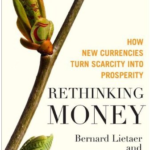
Lietaer B; Dunne J
Rethinking Money Book
Berrett-Koehler, 2013.
@book{Lietaer2013a,
title = {Rethinking Money},
author = {Bernard Lietaer and Jacqui Dunne},
year = {2013},
date = {2013-01-01},
urldate = {2013-01-01},
publisher = {Berrett-Koehler},
abstract = {- Describes an innovative way ordinary people are creating solutions to address a wide variety of problems globally - Reveals both the devastation caused by our current money system and ways new currencies are being designed to repair that damage - Coauthored by one of the world’s leading experts in money systems and an award-winning journalist There is a way—in fact, thousands of ways—to stop the seemingly inevitable slide toward global self-destruction. Solutions are already in place throughout the world where terrible problems once existed. The changes came about not through the redistribution of wealth, increased taxation, enlightened corporate self-interest, or government handouts but by people simply rethinking the concept of money and acting from this new perspective. With that restructuring, everything changes. Bernard Lietaer and Jacqui Dunne explain the origins of our current monetary system—built on bank debt and based on scarcity—and how its inherent limitations drive our ongoing social, economic, and ecological debacles. They then take readers on a fascinating expedition that chronicles stories of ordinary people and their communities solving critical issues that affect us all by using new money systems in tandem with conventional money. These accounts are just the tip of the iceberg—over 4,000 cooperative currencies are now in circulation. Rethinking Money demonstrates that new currencies can not only resolve money’s inadequacies but also energize new behaviors that can deliver the healthier world we fervently desire. For instance, currencies have been designed to strengthen local economies, create work, beautify a city, and provide health care. The book provides remedies for challenges faced by governments, businesses, nonprofits, local communities, and even banks. It speaks clearly about a complex subject and promises to strike a deep chord with readers eager to find meaningful solutions to the problems that threaten our security, our prosperity, and our future.},
keywords = {},
pubstate = {published},
tppubtype = {book}
}
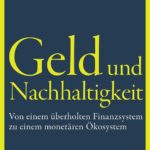
Lietaer B; Arnsperger C; Goerner S J; Brunnhuber S
Geld und Nachhaltigkeit: Von einem überholten Finanzsystem zu einem monetären Ökosystem. Book
Europa Verlag, 2013.
@book{Lietaer2013,
title = {Geld und Nachhaltigkeit: Von einem überholten Finanzsystem zu einem monetären Ökosystem.},
author = {Bernard Lietaer and Christian Arnsperger and Sally J. Goerner and Stefan Brunnhuber},
year = {2013},
date = {2013-01-01},
urldate = {2013-01-01},
publisher = {Europa Verlag},
keywords = {},
pubstate = {published},
tppubtype = {book}
}

Lietaer B
Les Monnaies Complémentaires au Service de la Cohésion Sociale des Territoires Book
Les Entretiens Albert-Kahn, Conseil Général Hauts-De-Seine, 2013.
@book{Lietaer2013c,
title = {Les Monnaies Complémentaires au Service de la Cohésion Sociale des Territoires},
author = {Bernard Lietaer},
year = {2013},
date = {2013-01-01},
urldate = {2013-01-01},
publisher = {Conseil Général Hauts-De-Seine},
edition = {Les Entretiens Albert-Kahn},
keywords = {},
pubstate = {published},
tppubtype = {book}
}
Lietaer B; Primavera H
Moedas complementares, bancos comunitários e o futuro que podemos construir book_section
2013.
@book_section{Lietaer2013b,
title = {Moedas complementares, bancos comunitários e o futuro que podemos construir},
author = {Bernard Lietaer and Heloisa Primavera},
editor = {Instituto Palmas},
url = {https://bernard-lietaer.org/wp-content/uploads/2022/07/2013-Moedas-complementares-bancos-comunitarios-e-o-futuro-que-podemos-construir-Lietaer-Primavera-annotated.pdf},
isbn = {978-85-64712-07-2},
year = {2013},
date = {2013-01-01},
urldate = {2013-01-01},
journal = {Banco Palmas 15 anos: resistindo e inovando},
issue = {September},
pages = {61-74},
publisher = {NEOSOL-USP},
keywords = {},
pubstate = {published},
tppubtype = {book_section}
}
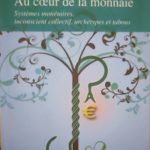
Lietaer B
Au coeur de la monnaie: systèmes monétaires, inconscient collectif, archétypes et tabous (Mysterium Geld) Book
Yves Michel, 2013, ISBN: 2364290317.
@book{Impr.XL-Print2013,
title = {Au coeur de la monnaie: systèmes monétaires, inconscient collectif, archétypes et tabous (Mysterium Geld)},
author = {Bernard Lietaer},
isbn = {2364290317},
year = {2013},
date = {2013-01-01},
urldate = {2013-01-01},
publisher = {Yves Michel},
abstract = {Seconde édition revue et augmentée. Trad. de l'anglais. Glossaire. A travers une série de questions historiques, philosophiques, économiques et spirituelles, B. Lietaer suggère que les systèmes monétaires contemporains sont davantage fondés sur l'émotion que sur la rationalité.--[Memento].},
keywords = {},
pubstate = {published},
tppubtype = {book}
}
Stodder J; Lietaer B
WIR - Eine Währung, die den Tausch neu erfindet book_section
2013.
@book_section{Stodder2013,
title = {WIR - Eine Währung, die den Tausch neu erfindet},
author = {James Stodder and Bernard Lietaer},
editor = {Silke Helfrich and David Bollier and Heinrich-Böll-Stiftung},
url = {https://bernard-lietaer.org/wp-content/uploads/2022/07/2013-WIR-Eine-Wahrung-die-den-Tausch-neu-erfindet-Stodder-Lietaer-annotated.pdf
https://www.band2.dieweltdercommons.de/essays/wir_waehrung.html
https://www.transcript-verlag.de/author/lietaer-bernard-320005862/},
doi = {10.1515/9783839432457-034},
year = {2013},
date = {2013-01-01},
urldate = {2013-01-01},
journal = {Die Welt der Commons},
pages = {196-198},
publisher = {transcript Verlag},
keywords = {},
pubstate = {published},
tppubtype = {book_section}
}
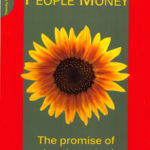
Kennedy M; Lietaer B; Rogers J
People Money: The Promise of Regional Currencies Book
Triarchy Press, 2012, ISBN: 1908009764.
@book{Kennedy2012,
title = {People Money: The Promise of Regional Currencies},
author = {Margrit Kennedy and Bernard Lietaer and John Rogers},
isbn = {1908009764},
year = {2012},
date = {2012-01-01},
urldate = {2012-01-01},
pages = {258},
publisher = {Triarchy Press},
abstract = {Three authors with decades of experience have teamed up to provide an up-to-date, state-of-the art field guide to the emerging movement of regional currencies. Regional currency is the Harry Potter of currencies: a wizard with hidden powers, these powers expand the field of monetary magic, which in turn expands the field of human possibility. People Money describes a global movement of people creating their own currencies to support regional business and strengthen their communities. These currencies operate legally alongside Bank Money and Government Money, giving people new choices in an age of transition from - outworn financial structures to an era of sustainable abundance.},
keywords = {},
pubstate = {published},
tppubtype = {book}
}
Bonse E; Lietaer B
Nur Steuern verleihen Wert newspaper_article
2012.
@newspaper_article{Bonse2012,
title = {Nur Steuern verleihen Wert},
author = {Eric Bonse and Bernard Lietaer},
url = {https://bernard-lietaer.org/wp-content/uploads/2022/07/2012-Nur-Steuern-verleihen-Wert-Bonse-Lietaer-annotated.pdf},
year = {2012},
date = {2012-01-01},
urldate = {2012-01-01},
journal = {TAZ (5. Juni)},
pages = {9},
keywords = {},
pubstate = {published},
tppubtype = {newspaper_article}
}
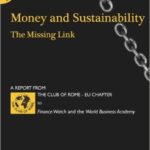
Lietaer B; Arnsperger C; Goerner S J; Brunnhuber S
Money and sustainability: the missing link Book
Triarchy Press, 2012, ISBN: 9781908009753.
@book{Lietaer2012b,
title = {Money and sustainability: the missing link},
author = {Bernard Lietaer and Christian Arnsperger and Sally J. Goerner and Stefan Brunnhuber},
url = {http://www.triarchypress.net/money-and-sustainability.html
https://ipfs.io/ipfs/QmYgRNuBEuNkawgBww4zY5ZSwBXoxMdYppCsD7ZxkZyiSW?filename=Money%20%26%20Sustainability_The_Missing_Link_-_Lietaer_Brunnhuber_Goerner_Arnsperger.epub},
isbn = {9781908009753},
year = {2012},
date = {2012-01-01},
urldate = {2012-01-01},
pages = {211},
publisher = {Triarchy Press},
abstract = {A report from the Club of Rome - EU Chapter to Finance Watch and the World Business Academy Money and Sustainability: The Missing Link – Report from the Club of Rome proposes an alternative: a monetary ‘ecosystem’ with complementary currencies working alongside the conventional one. This is more flexible, resilient, fair and sustainable. Societies worked like this in the past. So can we. The book first explains these systemic problems in detail. It’s written in a way that’s clearly accessible to the general public (although it references at length a wide range of technical topics: economics theory, the history and institutions of banking, the physics of complex flow networks, the science of sustainability, and population trends and climate change). This gives a framework for understanding the present money system. The authors then describe their proposal for an alternative money ecosystem which systematically addresses and resolves the problems created by the present system. Finally, this practical proposal is illustrated by nine case studies of different complementary currencies which are either running now, in development or could be implemented at short notice in individual cities and regions around the world.},
keywords = {},
pubstate = {published},
tppubtype = {book}
}
Blandin B; Lietaer B
Mutual learning: a systemic increase in learning efficiency to prepare for the challenges of the twenty-first century Journal Article
In: AI & SOCIETY 2012 28:3, vol. 28, iss. 3, pp. 329-338, 2012, ISSN: 1435-5655.
@article{Blandin2012,
title = {Mutual learning: a systemic increase in learning efficiency to prepare for the challenges of the twenty-first century},
author = {Bernard Blandin and Bernard Lietaer},
url = {https://link.springer.com/article/10.1007/s00146-012-0427-xhttps://bernard-lietaer.org/wp-content/uploads/2022/07/2012-Mutual-learning-a-systemic-increase-in-learning-efficiency-to-prepare-for-the-challenges-of-the-twenty-first-century-Blandin-L-annotated.pdfhttps://bernard-lietaer.org/wp-content/uploads/2022/07/2012-Mutual-learning-a-systemic-increase-in-learning-efficiency-to-prepare-for-the-challenges-of-the-twenty-first-century-Blandin-L-annotated.pdf},
doi = {10.1007/S00146-012-0427-X},
issn = {1435-5655},
year = {2012},
date = {2012-01-01},
urldate = {2012-01-01},
journal = {AI & SOCIETY 2012 28:3},
volume = {28},
issue = {3},
pages = {329-338},
publisher = {Springer},
abstract = {One of the few certainties we have about our collective future is that it will require a massive amount of learning, by just about everybody, everywhere. The time for generating as many creative and collaborative knowledge builders has come. Therefore, improving the efficiency of learning could very well become a key leverage point for successfully meeting the challenges of the twenty-first century. This paper explores the possibilities of using mutual learning as a systemic means to improve learning efficiencies. This is measured through three different metrics: (1) the time required to learn, (2) the quantity of learning that is retained over time, and (3) the leveraging of the cost of scholarships through the use of a complementary currency designed to track and encourage mutual learning. In all three metrics, mutual learning is shown as an important approach to increase the effectiveness of learning and, at the very least, can be an adjunct to the conventional educational methods. Mutual learning could apply not only to learning among peers, but also to social, intergenerational, or intercultural mutual learning.},
keywords = {},
pubstate = {published},
tppubtype = {article}
}

Lietaer B
Geld en duurzaamheid - van een falend geldsysteem naar een monetair ecosysteem Book
Jan van Arkel, 2012, ISBN: 9789062245215.
@book{Lietaer2012c,
title = {Geld en duurzaamheid - van een falend geldsysteem naar een monetair ecosysteem},
author = {Bernard Lietaer},
editor = {Jan Matthieu},
isbn = {9789062245215},
year = {2012},
date = {2012-01-01},
urldate = {2012-01-01},
publisher = {Jan van Arkel},
abstract = {Een rapport van de Club of Rome-EU Chapter aan Finance Watch en de World Business Academy. - Uitg. i.s.m. Oikos, denktank voor sociaal-ecologische verandering. Scope and content: Rapport van de Club van Rome over de relatie tussen het wereldwijde financiële systeem, duurzaamheid en de ontwikkeling van complementaire munteenheden.},
keywords = {},
pubstate = {published},
tppubtype = {book}
}
Lietaer B; Arnsperger C; Goerner S J; Brunnhuber S
Torekes book_section
2012.
@book_section{Lietaer2012a,
title = {Torekes},
author = {Bernard Lietaer and Christian Arnsperger and Sally J. Goerner and Stefan Brunnhuber},
url = {https://bernard-lietaer.org/wp-content/uploads/2022/07/2012-Torekes-Lietaer-annotated.pdf},
year = {2012},
date = {2012-01-01},
urldate = {2012-01-01},
journal = {Money and Sustainability - The missing link},
pages = {168-170},
publisher = {Triarchy Press},
keywords = {},
pubstate = {published},
tppubtype = {book_section}
}
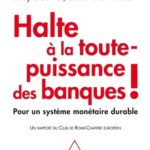
Lietaer B; Arnsperger C; Goerner S J; Stefan B
Halte à la toute-puissance des banques! Pour un système monétaire durable Book
Odile Jacob, 2012, ISBN: 2738128572.
@book{Lietaer2012,
title = {Halte à la toute-puissance des banques! Pour un système monétaire durable},
author = {Bernard Lietaer and Christian Arnsperger and Sally J. Goerner and Brunnhuber Stefan},
isbn = {2738128572},
year = {2012},
date = {2012-01-01},
urldate = {2012-01-01},
publisher = {Odile Jacob},
abstract = {Pour la première fois, avec cet ouvrage, le monopole monétaire des banques et les déséquilibres qu'il engendre sont analysés et dénoncés : amplification des effets cycliques et de l'instabilité financière, concentration de la richesse, dévaluation du capital social, pensée économique réflexe et mimétique privilégiant le court terme, etc. À contre-courant des idées dominantes et pour contrer les effets ravageurs du système monétaire actuel, une voie profondément originale est ici proposée : briser le monopole des banques et généraliser un instrument déjà existant mais encore trop peu utilisé - les monnaies complémentaires -, ce qui permettrait enfin de rétribuer et d'encourager la solidarité, de favoriser la protection de l'environnement ainsi que la santé de tous. Un appel salubre et opportun au débat et à la réflexion ! Bernard Lietaer, professeur de finance internationale et spécialiste des questions monétaires, a été l'un des architectes de l'ECU, le mécanisme de convergence à l'origine de la monnaie européenne. Christian Arnsperger est professeur d'économie à l'Université catholique de Louvain. Sally Goerner est diplômée en ingénierie, physique des systèmes et psychologie. Ses travaux portent sur l'intégration de la complexité aux sciences humaines. Stefan Brunnhuber est vice-président de l'Institut européen de médecine et professeur invité de nombreuses universités. Le Chapitre européen du Club de Rome est un think tank international, affilié au Club de Rome. Sa vocation est de lancer des passerelles entre les institutions de l'Union européenne et le Club de Rome. Il entend servir de forum de réflexion sur le développement durable en Europe et à l'échelle planétaire.},
keywords = {},
pubstate = {published},
tppubtype = {book}
}
Corthouts J; Lietaer B
‘Het is wachten op de crash’ newspaper_article
2012.
@newspaper_article{Corthouts2012,
title = {‘Het is wachten op de crash’},
author = {Johan Corthouts and Bernard Lietaer},
url = {https://bernard-lietaer.org/wp-content/uploads/2022/07/2012-‘Het-is-wachten-op-de-crash-Corthouts-Lietaer-annotated.pdf},
year = {2012},
date = {2012-01-01},
urldate = {2012-01-01},
journal = {De Morgen (28. Januari)},
pages = {26-27},
keywords = {},
pubstate = {published},
tppubtype = {newspaper_article}
}
Lietaer B
"Oser s'Attaquer à la Monnaie, c'est Finir sa Carrière dans le Missouri" magazine_article
2012.
@magazine_article{Lietaer2012e,
title = {"Oser s'Attaquer à la Monnaie, c'est Finir sa Carrière dans le Missouri"},
author = {Bernard Lietaer},
url = {https://bernard-lietaer.org/wp-content/uploads/2022/07/2012-Oser-sAttaquer-a-la-Monnaie-cest-Finir-sa-Carriere-dans-le-Missouri-Lietaer-annotated.pdf},
isbn = {4086301300502},
year = {2012},
date = {2012-01-01},
urldate = {2012-01-01},
journal = {Usbek & Rica},
pages = {2-4},
keywords = {},
pubstate = {published},
tppubtype = {magazine_article}
}
Valkenberg I; Lietaer B
Afhankelijkheid van euro zit tussen onze oren magazine_article
2012.
@magazine_article{Lietaer2012d,
title = {Afhankelijkheid van euro zit tussen onze oren},
author = {Ivo Valkenberg and Bernard Lietaer},
url = {https://bernard-lietaer.org/wp-content/uploads/2022/07/2012-Afhankelijkheid-van-euro-zit-tussen-onze-oren-Valkenberg-Lietaer-annotated.pdf},
year = {2012},
date = {2012-01-01},
urldate = {2012-01-01},
journal = {New Financial Magazin},
pages = {18-22},
keywords = {},
pubstate = {published},
tppubtype = {magazine_article}
}
Lietaer B
Les Monnaies Complémentaires Redonnent Du Sense À Nos Échanges book_section
2012.
@book_section{Lietaer2012g,
title = {Les Monnaies Complémentaires Redonnent Du Sense À Nos Échanges},
author = {Bernard Lietaer},
editor = {Lionel Astruc},
url = {https://bernard-lietaer.org/wp-content/uploads/2022/09/Politique-en-actes-2012.pdf},
isbn = {978 2 330 00205 3},
year = {2012},
date = {2012-01-01},
urldate = {2012-01-01},
journal = {(R)Évolutions - Pour une Politique en Actes},
pages = {96-119},
publisher = {Actes Sud},
edition = {Domaine du Possible},
keywords = {},
pubstate = {published},
tppubtype = {book_section}
}
Zutter J; Lietaer B
Je kunt een doctoraat hebben in economie en nooit weten wat geld is Journal Article
In: Sampol, vol. 19, iss. 1, pp. 50-61, 2012.
@article{nokey,
title = {Je kunt een doctoraat hebben in economie en nooit weten wat geld is},
author = {Jan Zutter and Bernard Lietaer},
url = {https://bernard-lietaer.org/wp-content/uploads/2022/09/sampol-2012.pdf},
year = {2012},
date = {2012-01-01},
urldate = {2012-01-01},
journal = {Sampol},
volume = {19},
issue = {1},
pages = {50-61},
keywords = {},
pubstate = {published},
tppubtype = {article}
}
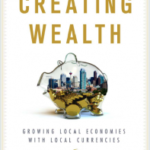
Hallsmith G; Lietaer B
Creating wealth: growing local economies with local currencies Book
New Society Publishers, 2011, ISBN: 0865716676.
@book{Hallsmith2011,
title = {Creating wealth: growing local economies with local currencies},
author = {Gwendolyn Hallsmith and Bernard Lietaer},
isbn = {0865716676},
year = {2011},
date = {2011-01-01},
urldate = {2011-01-01},
pages = {267},
publisher = {New Society Publishers},
abstract = {Local currencies have been introduced in thousands of communities around the world in response to the economic crisis because they offer an alternative to money as a way of meeting important human needs. Community leaders can mobilize assets using complementary currencies to address social and economic issues including health care, education, elder care, environmental problems, housing, and food security. Part I Local economies -- What is wealth? -- Crash and burn economics -- Community capitalism -- The possibility of sufficiency and abundance -- Part II Examples of complementary currencies -- Building equity -- Growing intelligence -- Exchanging ecologies -- Minding the communities business -- Putting the care back into healthcare -- Honoring our elders, caring for children -- Eating money -- Part III Making it happen -- Intentional cities -- A tale of three cities -- Conclusion : toward and monetary democracy -- Appendix : the community currency how-to manual.},
keywords = {},
pubstate = {published},
tppubtype = {book}
}
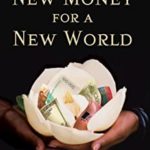
Lietaer B; Belgin S M
New Money for a New World Book
Quiterra Press, 2011.
@book{Lietaer2011,
title = {New Money for a New World},
author = {Bernard Lietaer and Stephen M. Belgin},
year = {2011},
date = {2011-01-01},
urldate = {2011-01-01},
publisher = {Quiterra Press},
keywords = {},
pubstate = {published},
tppubtype = {book}
}
Hallsmith G; Lietaer B
Eating money book_section
2011.
@book_section{Hallsmith2010,
title = {Eating money},
author = {Gwendolyn Hallsmith and Bernard Lietaer},
url = {https://bernard-lietaer.org/wp-content/uploads/2022/05/Hallsmith-Lietaer-2010-Eating-money.pdf},
issn = {1380-2038},
year = {2011},
date = {2011-01-01},
urldate = {2011-01-01},
journal = {Creating Wealth - Growing Local Economies with Local Currencies},
pages = {143-161},
publisher = {New Society Publishers},
keywords = {},
pubstate = {published},
tppubtype = {book_section}
}
Bindewald L; Lietaer B
Der blinde Fleck der globalen Krisen book_section
2011.
@book_section{Bindewald2011,
title = {Der blinde Fleck der globalen Krisen},
author = {Leander Bindewald and Bernard Lietaer},
editor = {Peter Krause},
year = {2011},
date = {2011-01-01},
urldate = {2011-01-01},
journal = {Ende oder Neubeginn},
publisher = {Flensburger Hefte},
keywords = {},
pubstate = {published},
tppubtype = {book_section}
}
Lietaer B
Monetary Monopoly as Structural Cause for Systemic Financial Instabilities? book_section
2011.
@book_section{Lietaer2010,
title = {Monetary Monopoly as Structural Cause for Systemic Financial Instabilities?},
author = {Bernard Lietaer},
editor = {Simon Mouatt and Carl Adams},
url = {https://link.springer.com/chapter/10.1057/9780230298972_2},
year = {2011},
date = {2011-01-01},
urldate = {2011-01-01},
journal = {Corporate and Social Transformation of Money and Banking},
pages = {25-55},
publisher = {McMillan},
keywords = {},
pubstate = {published},
tppubtype = {book_section}
}
Lietaer B
The Big Picture magazine_article
2011.
@magazine_article{Lietaer2011b,
title = {The Big Picture},
author = {Bernard Lietaer},
url = {https://bernard-lietaer.org/wp-content/uploads/2022/07/2011-The-Big-Picture-Lietaer-annotated.pdf},
year = {2011},
date = {2011-01-01},
urldate = {2011-01-01},
journal = {CCMagazine},
volume = {3},
issue = {1},
pages = {3-5},
abstract = {This study aims to find out and analyze the contribution of regional taxes to regional original income (PAD) and regional tax growth in 2013-2017. The location of this study was conducted at the Regional Financial and Asset Agency in Bantul Regency. This type of research is qualitative descriptive. Data analysis techniques using ratio analysis. The results showed that local tax revenues and local revenue (PAD) in Bantul Regency experienced a significant increase. The contribution of local taxes to local revenue is "quite good", averaging 32.645%. The largest regional tax contribution is dominated by the Tax Transfer of Land and Building Rights (BPHTB). Regional tax growth and regional original income in that year were positively correlated, on average 18.75% and 18.35%},
keywords = {},
pubstate = {published},
tppubtype = {magazine_article}
}
Lietaer B
Complementary Currencies at Work book_section
2011.
@book_section{Lietaer2011a,
title = {Complementary Currencies at Work},
author = {Bernard Lietaer},
editor = {Simon Mouatt and Carl Adams},
url = {https://link.springer.com/chapter/10.1057/9780230298972_10https://bernard-lietaer.org/wp-content/uploads/2022/07/2011-Complementary-Currencies-at-Work-Lietaer-annotated.pdf},
doi = {10.1057/9780230298972_10},
year = {2011},
date = {2011-01-01},
urldate = {2011-01-01},
journal = {Corporate and Social Transformation of Money and Banking},
pages = {160-178},
publisher = {Palgrave Macmillan, London},
abstract = {This chapter regroups some examples of complementary currencies that are fully operational today somewhere in the world. They are classified in two categories: first some business initiatives, and later a sampling of some social purpose projects.},
keywords = {},
pubstate = {published},
tppubtype = {book_section}
}
Lietaer B
Towards a Monetary Ecology book_section
2011.
@book_section{Lietaer2011d,
title = {Towards a Monetary Ecology},
author = {Bernard Lietaer},
editor = {Simon Mouatt and Carl Adams},
url = {https://link.springer.com/chapter/10.1057/9780230298972_11https://bernard-lietaer.org/wp-content/uploads/2022/07/2011-Towards-a-Monetary-Ecology-Lietaer-annotated.pdf},
doi = {10.1057/9780230298972_11},
year = {2011},
date = {2011-01-01},
urldate = {2011-01-01},
journal = {Corporate and Social Transformation of Money and Banking},
pages = {181-204},
publisher = {Palgrave Macmillan, London},
abstract = {In this chapter we explore some new proposals that are not yet operational at this point, to get an idea of what a complete range of systems would look like if and when we have a fuller ‘monetary ecology’. In the previous chapter we dealt with...},
keywords = {},
pubstate = {published},
tppubtype = {book_section}
}
Lietaer B; Hallsmith G
Making Money for Business: Currencies, Profit, and Long-Term Thinking magazine_article
2011.
@magazine_article{Lietaer2011c,
title = {Making Money for Business: Currencies, Profit, and Long-Term Thinking},
author = {Bernard Lietaer and Gwendolyn Hallsmith},
url = {https://bernard-lietaer.org/wp-content/uploads/2022/07/2011-Making-Money-for-Business-Currencies-Profit-and-Long-Term-Thinking-Lietaer-Hallsmith-annotated.pdf},
year = {2011},
date = {2011-01-01},
urldate = {2011-01-01},
journal = {Solutions},
volume = {2},
issue = {5},
pages = {64-69},
abstract = {In Brief Businesses have tended to leave the question of how the monetary system works to the government, central banks, and the banking system. Yet in doing so they miss the opportunity to solve key monetary and financial problems that cause real heartburn in times of economic downturn—leading to layoffs, bankruptcies, and cascading economic crises. Small- and medium-sized busi- nesses provide between 65 and 95 percent of private jobs worldwide. Their main challenge is access to working capital, which is crucial for job maintenance and creation. When credit lines get prohibitively expensive or are pulled back, as is the case today, the jobs evaporate. A financial innovation—the Commercial Credit Circuit (C3)— provides critical working capital for small- and medium-sized businesses and already operates in several countries. It represents a substantial improvement on commercial barter by making its business-to-business (B2B) currency convertible into official national currency. This article also discusses how inventory receipts and stor- age costs for commodities and services could form the basis of a new international planning and trading currency, called the Terra. Multinational companies that produce or use commodities and international services could establish the value of the Terra by creating a standardized basket of the most important commodities and services in global trade (e.g., oil, wheat, copper, carbon credits, or container shipping services). Among the benefits of such a system would be that it could make it profitable for multinational busi- nesses to think long-term, and also would contribute to stabilizing the world’s business cycle.},
keywords = {},
pubstate = {published},
tppubtype = {magazine_article}
}
Gostev A; Lietaer B
"Наша экономика находится в кризисе постоянно" magazine_article
2011.
@magazine_article{Lietaer2011e,
title = {"Наша экономика находится в кризисе постоянно"},
author = {Alexey Gostev and Bernard Lietaer},
url = {https://www.kommersant.ru/doc/1638756},
year = {2011},
date = {2011-01-01},
urldate = {2011-01-01},
journal = {kommersant.ru},
pages = {online},
abstract = {Деньги не пахнут",— сказал в свое время римский император Веспасиан, отстаивая идею налога на общественные уборные. Бельгийский экономист Бернард Лиетер в корне не согласен с этим утверждением. Деньги всегда пахнут — кровью, нефтью или близкой бедой. Наша финансовая система пахнет скорой катастрофой. Еще в 1970-е молодой бельгийский экономист Лиетер изучал "нестабильные валюты" латиноамериканских стран, не привязанные к золотому стандарту. Когда при Ричарде Никсоне золотой стандарт отменили и все валюты вдруг стали нестабильными, исследования Лиетера оказались востребованными, и он превратился в одного из самых успешных финансовых консультантов. В последние 20 лет он много занимается критикой современной финансовой системы. А сегодня он предрекает распад мира на враждующие монетарные зоны. Произойдет это совсем скоро — как только мы окажемся в мире после доллара.},
keywords = {},
pubstate = {published},
tppubtype = {magazine_article}
}
Hesselle L; Lietaer B
Demain, des monnaies locales pour changer le monde magazine_article
2011.
@magazine_article{Lietaer2011h,
title = {Demain, des monnaies locales pour changer le monde},
author = {Laure Hesselle and Bernard Lietaer},
url = {https://bernard-lietaer.org/wp-content/uploads/2022/07/2011-Demain-des-monnaies-locales-pour-changer-le-monde-de-Hesselle-Lietaer2-annotated.pdfhttps://bernard-lietaer.org/wp-content/uploads/2022/07/2011-Demain-des-monnaies-locales-pour-changer-le-monde-de-Hesselle-Lietaer-annotated.pdf},
year = {2011},
date = {2011-01-01},
urldate = {2011-01-01},
journal = {Imagine},
pages = {27-28},
keywords = {},
pubstate = {published},
tppubtype = {magazine_article}
}
Culot L; Lietaer B
Les monnaies locales en guise d’alternative à la crise newspaper_article
2011.
@newspaper_article{Lietaer2011g,
title = {Les monnaies locales en guise d’alternative à la crise},
author = {Lousie Culot and Bernard Lietaer},
url = {https://bernard-lietaer.org/wp-content/uploads/2022/07/2011-Les-monnaies-locales-en-guise-dalternative-a-la-crise-Lietaer-annotated.pdf},
year = {2011},
date = {2011-01-01},
urldate = {2011-01-01},
journal = {Le soir (30. Août)},
pages = {14-15},
keywords = {},
pubstate = {published},
tppubtype = {newspaper_article}
}
Lietaer B
Développer des monnaies non spéculatives magazine_article
2011.
@magazine_article{Lietaer2011f,
title = {Développer des monnaies non spéculatives},
author = {Bernard Lietaer},
url = {https://bernard-lietaer.org/wp-content/uploads/2022/07/2011-Developper-des-monnaies-non-speculatives-Lietaer-annotated.pdf},
isbn = {6182569200504},
year = {2011},
date = {2011-01-01},
urldate = {2011-01-01},
journal = {Terra Eco},
pages = {8},
keywords = {},
pubstate = {published},
tppubtype = {magazine_article}
}
Lietaer B
Innovative Government Issued Currencies working_paper
2011.
@working_paper{Lietaer2011i,
title = {Innovative Government Issued Currencies},
author = {Bernard Lietaer},
url = {https://bernard-lietaer.org/wp-content/uploads/2022/07/2011-Innovative-Government-Issued-Currencies-Lietaer-annotated.pdf},
year = {2011},
date = {2011-01-01},
urldate = {2011-01-01},
pages = {9},
abstract = {Until now, governments at all levels have been using three main policy instruments to encourage behaviors they consider desirable: regulations; subsidies for behaviors they want to encourage; and taxes for what they would like to discourage. However, all three approaches have their limits. Regulation can be a crude and slow tool to bring about the desired change. Usually, it has to settle for a compromised standard, and requires continuous enforcement to be effective. Furthermore, both regulations and taxes are often watered down due to lobbying efforts. Subsidies become scarce during recessions and periods of budget reductions, and tend to be cut whenever they enter in competition with more vital needs. “Is there another policy instrument available to obtain rapid, large scale behavior changes without increasing the budgetary burdens on public authorities?”},
keywords = {},
pubstate = {published},
tppubtype = {working_paper}
}
Lietaer B; Ulanowicz R E; Goerner S J
Reinventing Money: An Ecosystematic Approach book_section
2011.
@book_section{Lietaer2011k,
title = {Reinventing Money: An Ecosystematic Approach},
author = {Bernard Lietaer and Robert E. Ulanowicz and Sally J. Goerner},
editor = {Daniel Pinchback and Ken Jordan},
url = {https://bernard-lietaer.org/wp-content/uploads/2022/09/Reinventing-Money-2011.pdf},
isbn = {978 1 58394 439 6},
year = {2011},
date = {2011-01-01},
urldate = {2011-01-01},
journal = {What comes after money?},
pages = {79-109},
publisher = {Evolver Editions},
keywords = {},
pubstate = {published},
tppubtype = {book_section}
}
Lietaer B
Pourquoi les monnaies complémentaires sont nécessaires à la stabilité économique: les preuves scientifiques book_section
2011.
@book_section{Lietaer2011l,
title = {Pourquoi les monnaies complémentaires sont nécessaires à la stabilité économique: les preuves scientifiques},
author = {Bernard Lietaer},
editor = {Carine Dartiguepeyrou},
url = {https://bernard-lietaer.org/wp-content/uploads/2022/09/Preuves-Scientifiques-2011.pdf},
isbn = {978 2 296 55961 5},
year = {2011},
date = {2011-01-01},
urldate = {2011-01-01},
journal = {Au-delà de la crise financière - Nouvelles valeurs, nouvelles richesses},
pages = {87-100},
publisher = {L'Harmattan},
edition = {Prospectives},
keywords = {},
pubstate = {published},
tppubtype = {book_section}
}
Lietaer B
Ontsnappen uit de dode hoek book_section
2011.
@book_section{Lietaer2011m,
title = {Ontsnappen uit de dode hoek},
author = {Bernard Lietaer},
editor = {Dirk Holemans and Sara Engelen and Marleen Wynants},
url = {https://bernard-lietaer.org/wp-content/uploads/2022/09/Welvaren.pdf},
isbn = {9789081729703},
year = {2011},
date = {2011-01-01},
urldate = {2011-01-01},
journal = {Welvaren zonder groei: concrete ideeën voor een groene economie},
pages = {92-99},
publisher = {VUB - Oikos},
keywords = {},
pubstate = {published},
tppubtype = {book_section}
}
Lietaer B
Scientific Evidence of Why Complementary Currencies Are Necessary to Financial Stability working_paper
2010.
@working_paper{Lietaer2010c,
title = {Scientific Evidence of Why Complementary Currencies Are Necessary to Financial Stability},
author = {Bernard Lietaer},
url = {https://bernard-lietaer.org/wp-content/uploads/2022/07/2010-Scientific-Evidence-of-Why-Complementary-Currencies-Are-Necessary-to-Financial-Stability-Lietaer-annotated.pdf},
year = {2010},
date = {2010-01-01},
urldate = {2010-01-01},
keywords = {},
pubstate = {published},
tppubtype = {working_paper}
}
Lietaer B; Ulanowicz R E; Goerner S J; McLaren N
Is Our Monetary Structure a Systemic Cause for Financial Instability? Evidence and Remedies from Nature Journal Article
In: Journal of Futures Studies, vol. 14, iss. 3, pp. 89-108, 2010, ISSN: 10276084.
@article{Lietaer2010b,
title = {Is Our Monetary Structure a Systemic Cause for Financial Instability? Evidence and Remedies from Nature},
author = {Bernard Lietaer and Robert E. Ulanowicz and Sally J. Goerner and Nadia McLaren},
url = {https://bernard-lietaer.org/wp-content/uploads/2022/07/2010-Is-Our-Monetary-Structure-a-Systemic-Cause-for-Financial-Instability-Evidence-and-Remedies-from-Nature-Lietaer-et-al-annotated.pdf},
issn = {10276084},
year = {2010},
date = {2010-01-01},
urldate = {2010-01-01},
journal = {Journal of Futures Studies},
volume = {14},
issue = {3},
pages = {89-108},
abstract = {Fundamental laws govern all complex flow systems, including natural ecosystems, economic and financial systems. Natural ecosystems are practical exemplars of sustainability: enduring, vital, adaptive. The sustainability of any complex flow system can be measured with a single metric as an emergent property of its structural diversity and interconnectivity; it requires a balance in emphasis between efficiency and resilience. The urgent message for economics from nature is that the monoculture of national currencies, justified on the basis of market efficiency, generates structural instability in our global financial system. Economic sustainability therefore requires diversification in types of currencies, specifically through complementary currencies.},
keywords = {},
pubstate = {published},
tppubtype = {article}
}
Lietaer B
The Wörgl Experiment: Austria (1932-1933 ) working_paper
2010.
@working_paper{Lietaer2010d,
title = {The Wörgl Experiment: Austria (1932-1933 )},
author = {Bernard Lietaer},
url = {https://bernard-lietaer.org/wp-content/uploads/2022/07/2010-The-Worgl-Experiment-Austria-1932-1933-Lietaer-annotated.pdf},
year = {2010},
date = {2010-01-01},
urldate = {2010-01-01},
abstract = {This is extracted from the work of Bernard Lietaer, former central banker and one of the foremost international experts on the design and implementation of currency systems.},
keywords = {},
pubstate = {published},
tppubtype = {working_paper}
}
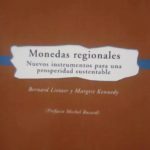
Lietaer B; Kennedy M
Monedas Regionales - Nuevos Instrumentos para una prosperidad sustentable Book
La Hidra de Lerna Ediciones, 2010, ISBN: 9788461385997.
@book{Lietaer2010f,
title = {Monedas Regionales - Nuevos Instrumentos para una prosperidad sustentable},
author = {Bernard Lietaer and Margrit Kennedy},
isbn = {9788461385997},
year = {2010},
date = {2010-01-01},
urldate = {2010-01-01},
publisher = {La Hidra de Lerna Ediciones},
abstract = {Se entiende por sistemas monetarios sociales, también conocidos como alternativos, comunitarios, complementarios, locales, paralelos, etcétera, a aquellos sistemas monetarios que se crean al margen de las monedas oficiales del país, y que tienen como objetivo fundamental la promoción de proyectos económicos y sociales de carácter local, a la vez que la puesta en valor de los activos y recursos locales que no se encuentran dentro de los círculos y circuitos ordinarios de intercambio debido a la escasez de la moneda oficial. La implantación de estos sistemas monetarios permite promover transacciones económicas que de otro modo no tendrían lugar por ser la moneda oficial escasa. En definitiva, son sistemas organizados y gestionados destinados al intercambio de determinados productos y servicios producidos en el ámbito local. Por lo tanto, necesariamente han de ser sistemas con una dimensión espacial limitada, basados en conceptos de vecindad, solidaridad, conocimiento y confianza mutuos. No obstante, entre cada una de las denominaciones que hemos mencionado existen matices y diferencias. Por cuestiones de espacio vamos a tratar todos ellos de forma unívoca como monedas sociales, destacando lo que es común, y, sobre todo, los aspectos de solidaridad comunal. Según los defensores de la economía de solidaridad, son sistemas que contrastan con los mecanismos e instituciones de la economía dominante, fundamentalmente los bancos centrales y la banca privada, instituciones que son claramente recelosos de los sistemas monetarios sociales o complementarios. Según la doctrina militante de los sistemas monetarios sociales, los bancos centrales crean escasez de dinero y es precisamente la escasez de dinero la que genera las crisis y paraliza los sistemas económicos locales. En efecto, “las monedas nacionales convencionales y lo sistemas monetarios han sido programados para generar competencia y mantener la escasez. Si existen otras monedas disponibles, tendrá sentido continuar usando las monedas convencionales para los negocios, adquirir un auto, pagar el combustible o la cuenta del teléfono; pero para comunicarse con los vecinos, ocuparse de las personas mayores o ampliar los horizontes educativos de los niños, tal vez deba contemplarse el uso de una moneda que favorezca la cooperación.” (Lietaer) Los autores plantean una nueva forma de desarrollo económico regional estimulado por las monedas regionales o monedas complementarias. En el libro se hace una revisión conceptual y se abordan numerosas experiencias de éxito en el ámbito de las monedas complementarias en todo el mundo, así como las oportunidades que presentan para salir de la presente crisis. Las monedas complementarias y regionales no son sólo un instrumento de desarrollo económico, sino que es un instrumento transversal por el que se pueden alcanzar objetivos de carácter medioambiental, social, asistencial, sanitarios, etc. Las monedas complementarias surgieron en la Gran Depresión, y Japón se ha convertido en la actualidad en uno de sus principales bancos de pruebas.},
keywords = {},
pubstate = {published},
tppubtype = {book}
}
Giarini O; Jacobs G; Lietaer B; Šlaus I
Introductory Paper for a Programme on The Wealth of Nations Revisited Journal Article
In: Cadmus, vol. 1, iss. 1, pp. 9-27, 2010.
@article{Giarini2010,
title = {Introductory Paper for a Programme on The Wealth of Nations Revisited},
author = {Orio Giarini and Garry Jacobs and Bernard Lietaer and Ivo Šlaus},
url = {https://bernard-lietaer.org/wp-content/uploads/2022/07/2010-Introductory-Paper-for-a-Programme-on-The-Wealth-of-Nations-Revisited-Giarini-et-al-annotated.pdf},
year = {2010},
date = {2010-01-01},
urldate = {2010-01-01},
journal = {Cadmus},
volume = {1},
issue = {1},
pages = {9-27},
keywords = {},
pubstate = {published},
tppubtype = {article}
}
Lietaer B
Système de valeurs et systèmes de monétaires book_section
2010.
@book_section{Lietaer2010g,
title = {Système de valeurs et systèmes de monétaires},
author = {Bernard Lietaer},
editor = {Thierry Gaudin and Élie Faroult},
url = {https://bernard-lietaer.org/wp-content/uploads/2022/07/2010-Systeme-de-valeurs-et-systemes-de-monetaires-Lietaer-annotated.pdf},
isbn = {2296137733},
year = {2010},
date = {2010-01-01},
urldate = {2010-01-01},
journal = {L'empreinte de la technique : ethnotechnologie prospective: Colloque de Cerisy},
pages = {92-105},
publisher = {L'Harmattan},
abstract = {Includes index.},
keywords = {},
pubstate = {published},
tppubtype = {book_section}
}
Lietaer B
Чем заменить доллар magazine_article
2010.
@magazine_article{Lietaer2010e,
title = {Чем заменить доллар},
author = {Bernard Lietaer},
url = {https://republic.ru/posts/17149},
year = {2010},
date = {2010-01-01},
urldate = {2010-01-01},
journal = {Republic.ru},
pages = {online},
keywords = {},
pubstate = {published},
tppubtype = {magazine_article}
}
Berthaud C; Lietaer B
Diversifier les monnaies pour éviter les crises newspaper_article
2010.
@newspaper_article{Lietaer2010h,
title = {Diversifier les monnaies pour éviter les crises},
author = {Cécile Berthaud and Bernard Lietaer},
url = {https://bernard-lietaer.org/wp-content/uploads/2022/07/2010-Diversifier-les-monnaies-pour-eviter-les-crises-Lietaer-annotated.pdf},
year = {2010},
date = {2010-01-01},
urldate = {2010-01-01},
journal = {L'Echo (20. Février)},
pages = {32},
keywords = {},
pubstate = {published},
tppubtype = {newspaper_article}
}
Lietaer B
The Monetary Blind Spot working_paper
2010.
@working_paper{Lietaer2010i,
title = {The Monetary Blind Spot},
author = {Bernard Lietaer},
url = {https://bernard-lietaer.org/wp-content/uploads/2022/07/2010-The-Monetary-Blind-Spot-Lietaer-annotated.pdf},
year = {2010},
date = {2010-01-01},
urldate = {2010-01-01},
pages = {5},
abstract = {The human eye has a biological blind spot, i.e. the spot where the optical nerve enters the eyeball corresponds to an area where we literally can’t see anything. The way that money enters the economy and our social system seems to suffer from a similar blind spot. There are four layers to this phenomenon. They are respectively: the patriarchal value coherence; the capitalist vs. communist ideological war; an institutionalized status quo; and finally an academic taboo. Here, we will only briefly summarize each of these layers.},
keywords = {},
pubstate = {published},
tppubtype = {working_paper}
}
Lietaer B
Commercial Credit Circuit (C3): A Financial Innovation to Structurally Address Unemployment working_paper
2009.
@working_paper{Lietaer2008a,
title = {Commercial Credit Circuit (C3): A Financial Innovation to Structurally Address Unemployment},
author = {Bernard Lietaer},
url = {https://bernard-lietaer.org/wp-content/uploads/2022/07/2008-Commercial-Credit-Circuit-C3-A-Financial-Innovation-to-Structurally-Address-Unemployment-Lietaer-annotated.pdf},
year = {2009},
date = {2009-01-01},
urldate = {2009-01-01},
keywords = {},
pubstate = {published},
tppubtype = {working_paper}
}
Ulanowicz R E; Goerner S J; Lietaer B; Gomez R
Quantifying sustainability: Resilience, efficiency and the return of information theory Journal Article
In: Ecological Complexity, vol. 6, iss. 1, pp. 27-36, 2009, ISSN: 1476945X.
@article{Ulanowicz2009,
title = {Quantifying sustainability: Resilience, efficiency and the return of information theory},
author = {Robert E. Ulanowicz and Sally J. Goerner and Bernard Lietaer and Rocio Gomez},
url = {http://linkinghub.elsevier.com/retrieve/pii/S1476945X08000561https://bernard-lietaer.org/wp-content/uploads/2022/07/2009-Quantifying-sustainability-Resilience-efficiency-and-the-return-of-information-theory-Ulanowicz-et-al-annotated.pdf},
doi = {10.1016/j.ecocom.2008.10.005},
issn = {1476945X},
year = {2009},
date = {2009-01-01},
urldate = {2009-01-01},
journal = {Ecological Complexity},
volume = {6},
issue = {1},
pages = {27-36},
abstract = {Contemporary science is preoccupied with that which exists; it rarely accounts for what is missing. But often the key to a system's persistence lies with information concerning lacunae. Information theory (IT), predicated as it is on the indeterminacies of existence, constitutes a natural tool for quantifying the beneficial reserves that lacunae can afford a system in its response to disturbance. In the format of IT, unutilized reserve capacity is complementary to the effective performance of the system, and too little of either attribute can render a system unsustainable. The fundamental calculus of IT provides a uniform way to quantify both essential attributes - effective performance and reserve capacity - and results in a single metric that gauges system sustainability (robustness) in terms of the tradeoff allotment of each. Furthermore, the same mathematics allows one to identify the domain of robust balance as delimited to a "window of vitality" that circumscribes sustainable behavior in ecosystems. Sensitivity analysis on this robustness function with respect to each individual component process quantifies the value of that link "at the margin", i.e., how much each unit of that process contributes to moving the system towards its most sustainable configuration. The analysis provides heretofore missing theoretical justification for efforts to preserve biodiversity whenever systems have become too streamlined and efficient. Similar considerations should apply as well to economic systems, where fostering diversity among economic processes and currencies appears warranted in the face of over-development. textcopyright 2008 Elsevier B.V. All rights reserved.},
keywords = {},
pubstate = {published},
tppubtype = {article}
}
Lietaer B; Ulanowicz R E; Goerner S J
Options for managing a systemic bank crisis Journal Article
In: Sapiens, vol. 2, iss. 1, pp. 1-15, 2009, ISSN: 1993-3819.
@article{Lietaer2009,
title = {Options for managing a systemic bank crisis},
author = {Bernard Lietaer and Robert E. Ulanowicz and Sally J. Goerner},
url = {http://sapiens.revues.org/747https://bernard-lietaer.org/wp-content/uploads/2022/07/2009-Options-for-managing-a-systemic-bank-crisis-Lietaer-Ulanowicz-Goerner2-annotated.pdf},
issn = {1993-3819},
year = {2009},
date = {2009-01-01},
urldate = {2009-01-01},
journal = {Sapiens},
volume = {2},
issue = {1},
pages = {1-15},
abstract = {The on-going financial crisis results not from a cyclical or managerial failure, but from a structural one: more than 96 other major banking crises occurred over the past 20 years, and these crashes have happened under very different regulatory systems and at different stages of economic development. So far, conventional solutions are being applied?nationalization of the problem assets (as in the original Paulson bailout) or nationalization of the banks (as in Europe). These solutions only deal with the symptoms and not the systemic cause of today?s banking crisis. Similarly, the financial re-regulation that will be on everybody?s political agenda will, at best, reduce the frequency of such crises, but not avoid their re-occurrence. Better solutions are urgently needed because the last breakdown of this magnitude, the Great Depression of the 1930s, ended up in a wave of fascism and World War II. In this paper, we describe a recent conceptual breakthrough?based on the functioning of balanced ecosystems? that shows that all complex systems, including our monetary and financial ones, become structurally unstable whenever efficiency is overemphasized at the expense of diversity, interconnectivity and the crucial resilience they provide. The surprising insight from a systemic perspective is that sustainable vitality involves diversifying the types of currencies and institutions and introducing new ones that are designed specifically to increase the availability of money in its prime function as a medium of exchange, rather than for savings or speculation. Additionally, these currencies are expressly designed to link unused resources with unmet needs within a community, region or country. These currencies are know as complementary because they do not replace the conventional national money, but rather, operate in parallel with it. We propose that a systemic understanding and technical solution are now available that would ensure that such crashes become a phenomenon of the past. The most effective way for governments to support such a strategy of a more diverse and sustainable monetary ecology would be to accept a well-designed, robust complementary currency in partial payment of taxes during a period when banks are not in a position to fully finance the real economy. The choice of a complementary currency reflects both a technical issue (robustness and resilience against fraud) and a political one (what type of programs are desirable to support). A good candidate for consideration would be a professionally run business-to-business (B2B) complementary currency based on the model of the WIR system. This currency has been successfully operational for 75 years in Switzerland, involving a quarter of all the businesses in that country. Formal econometric analysis has proven that the WIR acts as a significant counter-cyclical stabilizing factor that explains the proverbial long-standing stability of the Swiss economy.},
keywords = {},
pubstate = {published},
tppubtype = {article}
}
Lietaer B
Stabilising the economic sector with alternative currency magazine_article
2009.
@magazine_article{Lietaer2009a,
title = {Stabilising the economic sector with alternative currency},
author = {Bernard Lietaer},
url = {https://www.resurgence.org/magazine/issue253-economics-of-place.html},
year = {2009},
date = {2009-01-01},
urldate = {2009-01-01},
journal = {Resurgence Magazine},
volume = {253},
keywords = {},
pubstate = {published},
tppubtype = {magazine_article}
}
Goerner S J; Lietaer B; Ulanowicz R E
Quantifying economic sustainability: Implications for free-enterprise theory, policy and practice Journal Article
In: Ecological Economics, vol. 69, iss. 1, pp. 76-81, 2009, ISSN: 09218009.
@article{Goerner2009,
title = {Quantifying economic sustainability: Implications for free-enterprise theory, policy and practice},
author = {Sally J. Goerner and Bernard Lietaer and Robert E. Ulanowicz},
url = {http://linkinghub.elsevier.com/retrieve/pii/S0921800909003085https://bernard-lietaer.org/wp-content/uploads/2022/07/2009-Quantifying-economic-sustainability-Implications-for-free-enterprise-theory-policy-and-practice-Goerner-Lietaer-Ulanowicz-annotated.pdf},
doi = {10.1016/j.ecolecon.2009.07.018},
issn = {09218009},
year = {2009},
date = {2009-01-01},
urldate = {2009-01-01},
journal = {Ecological Economics},
volume = {69},
issue = {1},
pages = {76-81},
abstract = {In a previous paper (Ulanowicz, Goerner, Lietaer, and Gomez, 2009), we combined thermodynamic, network, and information theoretic measures with research on real-life ecosystems to create a generalized, quantitative measure of sustainability for any complex, matter/energy flow system. The current paper explores how this metric and its related concepts can be used to provide a new narrative for long-term economic health and sustainability. Based on a system's ability to maintain a crucial balance between two equally essential, but complementary factors, resilience and efficiency, this generic explanation of the network structure needed to maintain long-term robustness provides the missing theoretical explanation for what constitutes healthy development and the mathematical means to differentiate it quantitatively from mere growth. Matching long-standing observations of sustainable vitality in natural ecosystems and living organisms, the result is a much clearer, more accurate understanding of the conditions needed for free-enterprise networks to produce the kind of sustainable vitality everyone desires, one which enhances and reliably maintains the health and well-being of all levels of global civilization as well as the planet. ?? 2009 Elsevier B.V. All rights reserved.},
keywords = {},
pubstate = {published},
tppubtype = {article}
}
Gründler E C; Lietaer B
Erhöhte Unfallgefahr magazine_article
2009.
@magazine_article{Grundler2009,
title = {Erhöhte Unfallgefahr},
author = {Elisabeth C. Gründler and Bernard Lietaer},
url = {https://www.brandeins.de/magazine/brand-eins-wirtschaftsmagazin/2009/wirtschaft-neu/erhoehte-unfallgefahr
https://bernard-lietaer.org/wp-content/uploads/2022/07/2009-Erhohte-Unfallgefahr-Bernard-Lietaer-Lietaer-Grundler-annotated.pdf},
year = {2009},
date = {2009-01-01},
urldate = {2009-01-01},
journal = {brand eins Wirtschaftsmagazin},
issue = {1},
pages = {154-161},
keywords = {},
pubstate = {published},
tppubtype = {magazine_article}
}
Lietaer B
Créer des monnaies régionales pour traiter la crise globale book_section
2009.
@book_section{Lietaer2009b,
title = {Créer des monnaies régionales pour traiter la crise globale},
author = {Bernard Lietaer},
url = {https://ecole.org/journal/seance/791-creer-des-monnaies-regionales-pour-traiter-la-crise-globalehttps://bernard-lietaer.org/wp-content/uploads/2022/07/2009-Creer-des-monnaies-regionales-pour-traiter-la-crise-globale-Lietaer-annotated.pdf},
year = {2009},
date = {2009-01-01},
urldate = {2009-01-01},
journal = {Le Journal de L'École de Paris du management},
volume = {80},
issue = {3},
abstract = {La crise bancaire et financière fait la une des médias depuis des mois. Pourquoi est-elle plus grave que les précédentes ? Quelle en est l’origine systémique ? Pourquoi les solutions conventionnelles (baisser les taux d’intérêt, renflouer les banques, relance keynésienne) ne suffiront-elles pas ? De plus, nous savons qu’elle coïncide avec d’autres défis planétaires sans précédent comme le changement de climat, les effets économiques du vieillissement des populations, et la mutation technologique qui découple la croissance et l’emploi. Quelles innovations monétaires sont disponibles dès aujourd’hui pour résoudre structurellement ces défis, et changer cette crise en une opportunité ? Que peuvent faire les États, les entreprises, et les citoyens eux-mêmes, pour éviter d’être entraînés dans la débâcle bancaire ? Autant de questions qui ont été traitées pendant cette soirée.},
keywords = {},
pubstate = {published},
tppubtype = {book_section}
}
Lietaer B
De nouvelles monnaies pour de nouveaux liens, une solution systémique à la crise ? working_paper
2009.
@working_paper{Lietaer2009c,
title = {De nouvelles monnaies pour de nouveaux liens, une solution systémique à la crise ?},
author = {Bernard Lietaer},
url = {https://bernard-lietaer.org/wp-content/uploads/2022/07/2009-De-nouvelles-monnaies-pour-de-nouveaux-liens-une-solution-systemique-a-la-crise-Lietaer-annotated.pdf},
year = {2009},
date = {2009-01-01},
urldate = {2009-01-01},
pages = {34},
institution = {Philosophie & Managment},
abstract = {Dans vos diverses formations, on vous a parlé de la manière de gagner de l’argent, de l’investir, en perdre, etc. mais jamais véritablement de ce qu’est l’argent et des questions qu’il pose. Lorsque j’écrivais mon livre The Future of Money1 , j’espérais que nous n’atteindrions pas le stade dans lequel nous nous trouvons. Le but de ce livre était de mettre en route une prise de conscience sur la nécessité de changer le système monétaire car, dans le cas contraire, c’est lui qui se chargera de nous – et d’une manière qui ne nous plaira pas… Tout va changer d’ici 2020 car il y 4 méga tendances qui sont totalement incompatibles avec la façon dont nous concevons le système monétaire actuellement.},
keywords = {},
pubstate = {published},
tppubtype = {working_paper}
}
Lietaer B; Paulo F D S
Bernard Lietaer’s Interview with Brazilian Newspaper Folha de S. Paulo magazine_article
2009.
@magazine_article{Lietaer2009d,
title = {Bernard Lietaer’s Interview with Brazilian Newspaper Folha de S. Paulo},
author = {Bernard Lietaer and Folha De S. Paulo},
url = {https://bernard-lietaer.org/wp-content/uploads/2022/07/2009-Bernard-Lietaers-Interview-with-Brazilian-Newspaper-Folha-de-S.-Paulo-Lietaer-Folha-De-S.-Paulo-annotated.pdf},
year = {2009},
date = {2009-01-01},
urldate = {2009-01-01},
journal = {CCMagazine},
issue = {April},
pages = {24-26},
keywords = {},
pubstate = {published},
tppubtype = {magazine_article}
}
Ulanowicz R E; Goerner S J; Lietaer B; Gomez R
Quantifying Sustainability: Appendix D Journal Article
In: Ecological Complexity, vol. 6, iss. 1, pp. 27-36, 2009.
@article{Ulanowicz2009a,
title = {Quantifying Sustainability: Appendix D},
author = {Robert E. Ulanowicz and Sally J. Goerner and Bernard Lietaer and Rocio Gomez},
url = {https://bernard-lietaer.org/wp-content/uploads/2022/07/2009-Quantifying-Sustainability-Appendix-D-Ulanowicz-et-al-annotated.pdf},
doi = {10.4018/978-1-60960-531-5.ch004},
year = {2009},
date = {2009-01-01},
urldate = {2009-01-01},
journal = {Ecological Complexity},
volume = {6},
issue = {1},
pages = {27-36},
keywords = {},
pubstate = {published},
tppubtype = {article}
}
Lietaer B
Une solution structurelle à la crise financière magazine_article
2009.
@magazine_article{Lietaer2009h,
title = {Une solution structurelle à la crise financière},
author = {Bernard Lietaer},
url = {https://bernard-lietaer.org/wp-content/uploads/2022/07/2009-Une-solution-structurelle-a-la-crise-financiere-Lietaer-annotated.pdf},
year = {2009},
date = {2009-01-01},
urldate = {2009-01-01},
journal = {Diplomatie HS},
pages = {74-76},
keywords = {},
pubstate = {published},
tppubtype = {magazine_article}
}
Brouyaux A; Lietaer B
La monnaie, à l'image des écosystèmes: plus de diversité S.V.P.! magazine_article
2009.
@magazine_article{Lietaer2009g,
title = {La monnaie, à l'image des écosystèmes: plus de diversité S.V.P.!},
author = {Antoinette Brouyaux and Bernard Lietaer},
url = {https://bernard-lietaer.org/wp-content/uploads/2022/07/2009-La-monnaie-a-limage-des-ecosystemes-plus-de-diversite-S.V.P.-Brouyaux-Lietaer-annotated.pdf},
year = {2009},
date = {2009-01-01},
urldate = {2009-01-01},
journal = {La Tribune FINANcité},
pages = {16},
abstract = {This study aims to find out and analyze the contribution of regional taxes to regional original income (PAD) and regional tax growth in 2013-2017. The location of this study was conducted at the Regional Financial and Asset Agency in Bantul Regency. This type of research is qualitative descriptive. Data analysis techniques using ratio analysis. The results showed that local tax revenues and local revenue (PAD) in Bantul Regency experienced a significant increase. The contribution of local taxes to local revenue is "quite good", averaging 32.645%. The largest regional tax contribution is dominated by the Tax Transfer of Land and Building Rights (BPHTB). Regional tax growth and regional original income in that year were positively correlated, on average 18.75% and 18.35%},
keywords = {},
pubstate = {published},
tppubtype = {magazine_article}
}
Hannes N; Lietaer B
Geldspecialist Bernard Lietaer: ‘De crisis is een kans’ newspaper_article
2009.
@newspaper_article{Lietaer2009e,
title = {Geldspecialist Bernard Lietaer: ‘De crisis is een kans’},
author = {Nick Hannes and Bernard Lietaer},
url = {https://www.mo.be/magazine/februari-2009/geldspecialist-bernard-lietaer-de-crisis-een-kanshttps://bernard-lietaer.org/wp-content/uploads/2022/07/2009-Geldspecialist-Bernard-Lietaer-‘De-crisis-is-een-kans-Hannes-Lietaer-annotated.pdf},
year = {2009},
date = {2009-01-01},
urldate = {2009-01-01},
journal = {MO (29. Januari)},
keywords = {},
pubstate = {published},
tppubtype = {newspaper_article}
}
Lüpke G; Lietaer B
Ich würde sagen: Baut Flöße! - Im Dialog mit dem Ökonomen und Tiefenpsychologen book_section
2009.
@book_section{nokey,
title = {Ich würde sagen: Baut Flöße! - Im Dialog mit dem Ökonomen und Tiefenpsychologen},
author = {Geseko Lüpke and Bernard Lietaer},
editor = {Geseko Lüpke},
url = {https://bernard-lietaer.org/wp-content/uploads/2022/09/Zukunft-Krise.pdf},
year = {2009},
date = {2009-01-01},
urldate = {2009-01-01},
journal = {Zukunft entsteht aus Krise},
pages = {442-464},
publisher = {Riemann},
keywords = {},
pubstate = {published},
tppubtype = {book_section}
}
Groussin T; Lietaer B
Changez la monnaie, vous changez la relation Journal Article
In: Transitions, vol. 2, iss. 2, pp. 8-12, 2009.
@article{Groussin2009,
title = {Changez la monnaie, vous changez la relation},
author = {Thierry Groussin and Bernard Lietaer},
url = {https://bernard-lietaer.org/wp-content/uploads/2022/09/transitions-2009.pdf},
year = {2009},
date = {2009-01-01},
urldate = {2009-01-01},
journal = {Transitions},
volume = {2},
issue = {2},
pages = {8-12},
keywords = {},
pubstate = {published},
tppubtype = {article}
}
Walsche A D; Vandaele J; Lietaer B
Interview with monetary specialist Bernard Lietaer on banks, the crisis and creative solutions magazine_article
2009.
@magazine_article{nokey,
title = {Interview with monetary specialist Bernard Lietaer on banks, the crisis and creative solutions},
author = {Alma De Walsche and John Vandaele and Bernard Lietaer},
url = {https://www.mo.be/en/article/interview-monetary-specialist-bernard-lietaer-banks-crisis-and-creative-solutions
https://bernard-lietaer.org/wp-content/uploads/2022/09/proMO-interview-2009.pdf},
year = {2009},
date = {2009-01-01},
urldate = {2009-01-01},
journal = {proMO (April 1st)},
keywords = {},
pubstate = {published},
tppubtype = {magazine_article}
}
Maertens A; Lietaer B
“De sociaal-complementaire munten hebben als doeleinde coöperatie en hebben dat ook als resultaat ” magazine_article
2009.
@magazine_article{Lietaer2009f,
title = {“De sociaal-complementaire munten hebben als doeleinde coöperatie en hebben dat ook als resultaat ”},
author = {Anton Maertens and Bernard Lietaer},
url = {https://bernard-lietaer.org/wp-content/uploads/2022/07/2009-De-sociaal-complementaire-munten-hebben-als-doeleinde-cooperatie-en-hebben-dat-ook-als-resultaat-Maertens-Lietaer-annotated.pdf},
year = {2009},
date = {2009-01-01},
urldate = {2009-01-01},
journal = {Het Hoofdstuk},
issue = {November},
pages = {27-35},
keywords = {},
pubstate = {published},
tppubtype = {magazine_article}
}
Lietaer B; Ulanowicz R E; Goerner S J
All the Options for Managing a Systemic Bank Crisis working_paper
2008.
@working_paper{Lietaer2008b,
title = {All the Options for Managing a Systemic Bank Crisis},
author = {Bernard Lietaer and Robert E. Ulanowicz and Sally J. Goerner},
url = {https://bernard-lietaer.org/wp-content/uploads/2022/07/2008-All-the-Options-for-Managing-a-Systemic-Bank-Crisis-Lietaer-annotated.pdf},
year = {2008},
date = {2008-01-01},
urldate = {2008-01-01},
pages = {30},
keywords = {},
pubstate = {published},
tppubtype = {working_paper}
}
"René Bartiral (Bernard Lietaer)" ; Vervoordt A
To what do we aspire? book_section
2008.
@book_section{Bartiral2008,
title = {To what do we aspire?},
author = {"René Bartiral (Bernard Lietaer)" and Axel Vervoordt},
editor = {Axel Vervoordt},
url = {https://bernard-lietaer.org/wp-content/uploads/2022/08/To-What-Do-We-Aspire.pdf},
year = {2008},
date = {2008-01-01},
urldate = {2008-01-01},
journal = {Academia: Qui es-tu?},
pages = {42},
publisher = {MER. Paper Kunsthalle},
keywords = {},
pubstate = {published},
tppubtype = {book_section}
}
Lietaer B
Know thyself! book_section
2008.
@book_section{Lietaer2008c,
title = {Know thyself!},
author = {Bernard Lietaer},
editor = {Axel Vervoordt},
url = {https://bernard-lietaer.org/wp-content/uploads/2022/08/Know-Thyself.pdf},
year = {2008},
date = {2008-01-01},
urldate = {2008-01-01},
journal = {Academia: Qui es-tu?},
publisher = {MER. Paper Kunsthalle},
keywords = {},
pubstate = {published},
tppubtype = {book_section}
}
Lietaer B
The Banking Crisis: What Can Businesses Do Now ? working_paper
2008.
@working_paper{Lietaer2008,
title = {The Banking Crisis: What Can Businesses Do Now ?},
author = {Bernard Lietaer},
url = {https://bernard-lietaer.org/wp-content/uploads/2022/07/2008-The-Banking-Crisis-What-Can-Businesses-Do-Now-Lietaer-annotated.pdf},
year = {2008},
date = {2008-01-01},
urldate = {2008-01-01},
pages = {1-6},
keywords = {},
pubstate = {published},
tppubtype = {working_paper}
}
Lietaer B
How Businesses Can Save Themselves from the Impact of the Banking Crisis working_paper
2008.
@working_paper{Lietaer2008bb,
title = {How Businesses Can Save Themselves from the Impact of the Banking Crisis},
author = {Bernard Lietaer},
url = {https://bernard-lietaer.org/wp-content/uploads/2022/07/2008-How-Businesses-Can-Save-Themselves-from-the-Impact-of-the-Banking-Crisis-Lietaer-annotated.pdf},
year = {2008},
date = {2008-01-01},
urldate = {2008-01-01},
keywords = {},
pubstate = {published},
tppubtype = {working_paper}
}
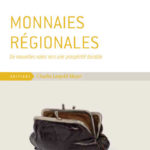
Lietaer B; Kennedy M
Monnaies Régionales: de nouvelles voies vers une prospérité durable Book
Éditions Charles Léopold Mayer (ECLM), 2008.
@book{Lietaer2008e,
title = {Monnaies Régionales: de nouvelles voies vers une prospérité durable},
author = {Bernard Lietaer and Margrit Kennedy},
year = {2008},
date = {2008-01-01},
urldate = {2008-01-01},
publisher = {Éditions Charles Léopold Mayer (ECLM)},
abstract = {La réflexion menée par Bernard Lietaer et Margrit Kennedy sur les fonctions de la monnaie et les moyens divers d’assumer ces fonctions, sur la coexistence, tout au long de l’histoire, de différentes monnaies replace dans une vaste fresque historique les expériences de monnaies complémentaires. Ce livre nous emmène en Suisse visiter le Wir, au Japon, découvrir le Fureai-kippu mais aussi à Bali, dans l’ancien Ghana ou encore dans le Moyen-Age d’Europe occidentale.},
keywords = {},
pubstate = {published},
tppubtype = {book}
}
Lietaer B
Rembrandt van Rijn, who are you? book_section
2008.
@book_section{Bartiral2015a,
title = {Rembrandt van Rijn, who are you?},
author = {Bernard Lietaer},
editor = {Axel Vervoordt},
url = {https://bernard-lietaer.org/wp-content/uploads/2022/08/Rembrandt.pdf},
isbn = {9789491775833},
year = {2008},
date = {2008-01-01},
urldate = {2008-01-01},
journal = {Academia: Qui es-tu?},
pages = {9f.},
publisher = {MER. Paper Kunsthalle},
keywords = {},
pubstate = {published},
tppubtype = {book_section}
}
Lietaer B; Ulanowicz R E; Goerner S J
Toutes les options pour gérer une crise bancaire systémique working_paper
2008.
@working_paper{Lietaer2008i,
title = {Toutes les options pour gérer une crise bancaire systémique},
author = {Bernard Lietaer and Robert E. Ulanowicz and Sally J. Goerner},
url = {https://bernard-lietaer.org/wp-content/uploads/2022/07/2008-Toutes-les-options-pour-gerer-une-crise-bancaire-systemique-Lietaer-Ulanowicz-Goerner-annotated.pdf},
year = {2008},
date = {2008-01-01},
urldate = {2008-01-01},
pages = {37},
publisher = {Etopia},
keywords = {},
pubstate = {published},
tppubtype = {working_paper}
}
Lietaer B; Ulanowicz R E; Goerner S J
Opties voor het beheren van een systeemcrisis bij de banken working_paper
2008.
@working_paper{Lietaer2008h,
title = {Opties voor het beheren van een systeemcrisis bij de banken},
author = {Bernard Lietaer and Robert E. Ulanowicz and Sally J. Goerner},
url = {https://bernard-lietaer.org/wp-content/uploads/2022/07/2008-Opties-voor-het-beheren-van-een-systeemcrisis-bij-de-banken-Lietaer-Ulanowicz-Goerner-annotated.pdf},
year = {2008},
date = {2008-01-01},
urldate = {2008-01-01},
abstract = {De huidige financiële crisis is niet het resultaat van een management falen of cyclische fouten maar van structurele problemen: in de voorbije 20 jaar hebben we meer dan 96 grote bankcrisissen gekend, en deze ineenstortingen kwamen voor onder erg verschillende reguleringssystemen en in verschillende ontwikkelingsstadia van een economie. Totnogtoe zijn enkel conventionele oplossingen toegepast – nationalisering van de probleemkredieten (zoals in het originele Paulson reddingsplan) of nationalisering van banken (zoals in Europa). Deze maatregelen verhelpen enkel de symptomen maar niet de systeemeigen oorzaak van de huidige bankcrisis. Op dezelfde manier zullen de financiële herreguleringen, die op ieders politieke agenda zullen staan, hoogstens de regelmaat van een dergelijke crisis verminderen, maar niet vermijden dat het opnieuw gebeurt. Betere oplossingen zijn dringend aan de orde, want de vorige instorting van die omvang, de Grote Depressie van de jaren ’30, draaide uit op een golf van fascisme en wereldoorlog II. In deze verhandeling beschrijven we een recente conceptuele doorbraak, gebaseerd op ecosystemen in evenwicht, die aantoont dat alle complexe systemen, ook monetaire en financiële, structureel labiel worden wanneer teveel nadruk ligt op efficiëntie, ten koste van diversiteit en verbondenheid die de cruciale veerkracht verzekeren. Het punt is niet dat ecosystemen een handige metafoor zijn om economie te beschrijven. Het punt is dat economie en ecosystemen dieperliggende wetten volgen die voor alle complexe kringloopsystemen gelden, zo ook economie en ecosystemen. Het verrassende inzicht dat dit systeemperspectief brengt, is dat duurzame dynamiek op financieel gebied een diversificatie van betaalmiddelen en instituties vraagt, via het invoeren van nieuwe betaalmiddelen, speciaal ontworpen om geld meer beschikbaar te hebben in zijn primaire functie van ruilmiddel, eerder dan van spaar- of speculatiemiddel. Bovendien zijn deze middelen speciaal ontworpen om onbenutte deugden te verenigen met onvervulde noden in een gemeenschap, regio of land. Deze betaalmiddelen noemen we complementair omdat ze de conventionele, nationale munt niet vervangen maar daar parallel mee functioneren. Deze systeembenadering is beschikbaar, en alles is in gereedheid om een technische oplossing te implementeren die ervoor zorgt dat de vernietigende effecten van bancaire en/of monetaire crashes tot het verleden behoren. Een overheid kan deze strategie van grotere diversiteit en duurzaamheid in munten het best ondersteunen door gedeeltelijk, in periodes waar banken niet meer in staat zijn om de echte economie voldoende te financieren, betalingen van belasting te aanvaarden in een goed ontworpen complementaire munt. De keuze van het complementair systeem is een technische aangelegenheid (duurzaam en bestand tegen fraude) en een politieke (welke activiteiten willen we steunen). Een goede kandidaat is een complementaire, professioneel beheerde, business-to-business (B2B) munt, naar het voorbeeld van het WIR-systeem. Deze munt is al 75 jaar succesvol in Zwitserland, en vertegenwoordigt vandaag een kwart van alle business in het land. Econometrische analyses door vakgenoten hebben uitgewezen dat de WIR een belangrijke, contracyclische, stabiliserende factor is die de spreekwoordelijke stabiliteit van de Zwitserse economie verklaart.},
keywords = {},
pubstate = {published},
tppubtype = {working_paper}
}
Lietaer B; Ulanowicz R E; Goerner S J
Opciones para gestionar la crisis sistémica de la Banca working_paper
2008.
@working_paper{Lietaer2008d,
title = {Opciones para gestionar la crisis sistémica de la Banca},
author = {Bernard Lietaer and Robert E. Ulanowicz and Sally J. Goerner},
url = {https://bernard-lietaer.org/wp-content/uploads/2022/07/2008-Opciones-para-gestionar-la-crisis-sistemica-de-la-Banca-Lietaer-Ulanowicz-Goerner-annotated.pdf},
year = {2008},
date = {2008-01-01},
urldate = {2008-01-01},
abstract = {La crisis financiera que sufrimos no es el resultado de un fallo cíclico o de gestión, sino que es estructural. Parte de la evidencia para esta afirmación es que ya ha habido más de 96 importantes crisis bancarias en los últimos 20 años, y que ese tipo de incidentes han ocurrido incluso bajo muy diferentes sistemas de regulación y en diferentes estadios de desarrollo económico. Necesitamos urgentemente encontrar mejores soluciones porque la última vez que nos enfrentamos a un fallo de esta magnitud, la gran Depresión de los años 30 acabó con una ola de fascismo y con la 2ª guerra mundial. Porque aplicando las soluciones convencionales, (nacionalización de activos problemáticos, como en el original rescate de Paulson, o la nacionalización de los bancos (como en Europa), sólo estamos tratando los síntomas, no la causa estructural de la crisis bancaria actual. Análogamente, la regulación financiera que está en la agenda política de todos, como mucho reducirá la frecuencia de este tipo de crisis, pero no evitará su recurrencia. La buena noticia es que ahora disponemos de una comprensión sistémica y de soluciones técnicas para lograr que estas crisis se conviertan en un fenómeno del pasado. Un descubrimiento conceptual reciente que proviene de la observación de los ecosistemas, equilibrados, con una estructura razonable, y altamente funcionales, prueba que cualquier sistema complejo, incluidos nuestros sistemas monetarios y financieros, se vuelven estructuralmente inestables cuando se sobre-enfatiza la eficiencia a expensas de la diversidad, la inter-conectividad y la crucial resiliencia que estas proveen. La sorprendente “a-ha” sistémica es que una vitalidad sostenible implica diversificar nuestros tipos de moneda e instituciones, introduciendo otros que estén específicamente diseñados para incrementar la disponibilidad de dinero en su función primaria como medio de intercambio, más que para ahorro o especulación. Además, esas monedas se diseñan expresamente para conectar lo que de otra manera quedarían como recursos sin usar y necesidades no cubiertas dentro de una comunidad, región o país. Este tipo de monedas se conocen como “complementarias” porque no reemplazan a la moneda nacional convencional, sino que más bien operan en paralelo con ella. La manera más efectiva para los gobiernos de apoyar esta estrategia de una ecología monetaria más diversa y sostenible, sería aceptar una robusta y bien elegida moneda local para el pago parcial de impuestos, durante el período en que los bancos no estén en situación de financiar totalmente la economía real. La elección de qué moneda complementaria aceptar, refleja tanto un aspecto técnico (robustez y resiliencia contra el fraude) como un asunto político (qué tipo de actividades se quieren apoyar). Recomendamos como un primer candidato para este papel, una moneda complementaria para intercambio entre profesiones, negocio por negocio (B2B), según el modelo del sistema WIR que ha funcionado bien durante 75 años en Suiza, implicando a la cuarta parte de los negocios del país. Este sistema ha sido acreditado por un análisis econométrico americano, como un significante factor estabilizador contra cíclico, que explica la proverbial estabilidad de la economía suiza.},
keywords = {},
pubstate = {published},
tppubtype = {working_paper}
}
Lietaer B; Ulanowicz R E; Goerner S J
Wege zur Bewältigung systemischer Bankenkrisen working_paper
2008.
@working_paper{Lietaer2008g,
title = {Wege zur Bewältigung systemischer Bankenkrisen},
author = {Bernard Lietaer and Robert E. Ulanowicz and Sally J. Goerner},
url = {https://bernard-lietaer.org/wp-content/uploads/2022/07/2008-Wege-zur-Bewaltigung-systemischer-Bankenkrisen-Lietaer-Ulanowicz-Goerner-annotated.pdf},
isbn = {9781119130536},
year = {2008},
date = {2008-01-01},
urldate = {2008-01-01},
pages = {30},
abstract = {Die fortlaufende Finanzkrise ist nicht das Ergebnis eines zyklisch auftretenden oder betriebswirtschaftlichen Versagens, sondern strukturell bedingt. Diese Aussage wird unter anderem dadurch belegt, dass es im Laufe der vergangenen 20 Jahre bereits mehr als 96 bedeutende Bankenkrisen gegeben hat und dass solche Pleiten auch in verschiedenen Kontrollsystemen und Stadien der wirtschaftlichen Entwicklung passiert sind. Wir müssen dringend bessere Lösungen finden, denn als wir dem letzten Zusammenbruch dieses Ausmaßes gegenüber standen - der Weltwirtschaftskrise der 1930-er Jahre - führte dies zu einer Welle des Faschismus und zum zweiten Weltkrieg. Doch die bisher angewendeten üblichen Lösungen – Verstaatlichung der Problem-Aktiva (wie im ursprünglichen Paulson-Rettungsplan) oder Verstaatlichung der Banken (wie in Europa) – behandeln nur die Symptome, nicht die grundlegende Ursache der derzeitigen Bankenkrise. Auch wird die Neuregulierung des Finanzsektors, die alle auf ihrer politischen Agenda haben, im besten Fall die Häufigkeit solcher Krisen reduzieren, nicht aber ihr erneutes Auftreten verhindern. Die gute Nachricht: Es stehen nun eine systemische Betrachtungsweise und eine fachgerechte Lösung zur Verfügung, die aus solchen Pleiten ein Phänomen der Vergangenheit machen würde. Durch einen kürzlich erfolgten wissenschaftlichen Durchbruch, der das Konzept ausbalancierter, strukturell intakter und gut funktionierender Ökosystemen erklärt, lässt sich nun belegen, dass alle komplexen Systeme – einschließlich der monetären und finanziellen – strukturell instabil werden, sobald die Produktivität überbetont wird auf Kosten von Vielfalt und Vernetzung sowie der entscheidenden Widerstandsfähigkeit, die diese bieten. Das überraschend Grundlegende und Anwendbare dieser Erkenntnis liegt darin, dass es zu nachhaltigem Wohlstand gehört, Vielfalt auch in unsere Währungen und dazugehörigen Institutionen zu bringen, und damit die Verfügbarkeit von Geld in seiner wesentlichen Funktion als Tauschmittel zu erhöhen, statt als Mittel zum Sparen und für Spekulation. Zudem sind diese Währungen speziell so gestaltet, dass sie andernfalls ungenutzte Ressourcen mit unbefriedigten Bedürfnissen innerhalb einer Gemeinschaft, einer Region oder eines Landes verbinden. Diese Währungen werden als „ergänzend“ bezeichnet, weil sie das national gebräuchliche Geld nicht ersetzen, sondern vielmehr parallel dazu benutzt werden.},
keywords = {},
pubstate = {published},
tppubtype = {working_paper}
}
Lietaer B
Le C3 (« Circuit de Crédit Commercial ») - Une innovation financière stimulant structurellement l’emploi working_paper
2008.
@working_paper{Lietaer2008f,
title = {Le C3 (« Circuit de Crédit Commercial ») - Une innovation financière stimulant structurellement l’emploi},
author = {Bernard Lietaer},
url = {https://bernard-lietaer.org/wp-content/uploads/2022/07/2008-Le-C3-Circuit-de-Credit-Commercial-Une-innovation-financiere-stimulant-structurellement-lemploi-Lietaer-annotated.pdf},
year = {2008},
date = {2008-01-01},
urldate = {2008-01-01},
pages = {3},
abstract = {Ce qui a commencé comme une crise bancaire et financière en 2008, devient rapidement une crise majeure de l’emploi. C’est aussi quelque chose de bien connu que la majorité des emplois sont fournis par les petites et moyennes entreprises (PME). Et la survie de beaucoup d’entre elles est maintenant en question, à cause de problèmes de trésorerie. Le},
keywords = {},
pubstate = {published},
tppubtype = {working_paper}
}
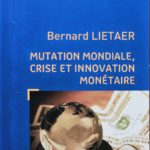
Lietaer B
Mutation mondiale, crise et innovation monétaire Book
Éditions de l'Aube, 2008, ISBN: 9782752604675.
@book{Lietaer2008j,
title = {Mutation mondiale, crise et innovation monétaire},
author = {Bernard Lietaer},
url = {https://books.google.be/books?id=LBFcPgAACAAJ},
isbn = {9782752604675},
year = {2008},
date = {2008-01-01},
urldate = {2008-01-01},
pages = {53},
publisher = {Éditions de l'Aube},
abstract = {Tous les textes d’économie parlent de la monnaie au travers de ses fonctions, c’est-à-dire ce qu’elle fait : unité de change, unité standard de valeur ou encore moyen d’épargne, etc. Mais on n’explique jamais vraiment ce qu’est véritablement la monnaie, quelle est sa vraie nature. Selon moi, la monnaie est d’abord un accord. Elle vit dans le même espace qu’un mariage, un contrat d’affaires, un parti politique, une nationalité. Tout cela n’existe que dans notre tête, mais ne signifie pas pour autant qu’elle n’est pas réelle. Or, ce qui me paraît primordial est que, comme dans tout accord, nous devons avoir la possibilité de le changer quand il ne nous convient plus. Il importe vraiment de prendre conscience de ce pouvoir. Après le mariage, n’avons-nous pas inventé le divorce?},
keywords = {},
pubstate = {published},
tppubtype = {book}
}
Lietaer B
El C3: « Circuito de Crédito Comercial » working_paper
2008.
@working_paper{Lietaer2008k,
title = {El C3: « Circuito de Crédito Comercial »},
author = {Bernard Lietaer},
url = {https://bernard-lietaer.org/wp-content/uploads/2022/07/2008-El-C3-Circuito-de-Credito-Comercial-Lietaer-annotated.pdf},
year = {2008},
date = {2008-01-01},
urldate = {2008-01-01},
pages = {4},
abstract = {Lo que ha comenzado como una crisis bancaria y financiera en 2008, se está convirtiendo rápidamente en una gran crisis de empleo. Es también sabido que la mayor parte del empleo es proporcionado por las pequeñas y medianas empresas (PYMES). Y la supervivencia de muchas de ellas está cuestionada debido a problemas de tesorería. El},
keywords = {},
pubstate = {published},
tppubtype = {working_paper}
}
Silvestre T; Lietaer B
The Terra (Interview) working_paper
2008.
@working_paper{Lietaer2008n,
title = {The Terra (Interview)},
author = {Tesa Silvestre and Bernard Lietaer},
url = {https://bernard-lietaer.org/wp-content/uploads/2022/07/2008-The-Terra-Interview-Silvestre-Lietaer-annotated.pdf},
year = {2008},
date = {2008-01-01},
urldate = {2008-01-01},
keywords = {},
pubstate = {published},
tppubtype = {working_paper}
}
Lietaer B
Komplementärwährungen in Japan: Geschichte, Originalität und Relevanz book_section
2008.
@book_section{Lietaer2008o,
title = {Komplementärwährungen in Japan: Geschichte, Originalität und Relevanz},
author = {Bernard Lietaer},
editor = {Mathias Weis and Heiko Spitzeck},
url = {https://bernard-lietaer.org/wp-content/uploads/2022/09/KWs-Japan-2008.pdf},
isbn = {978 3 258 07314 9},
year = {2008},
date = {2008-01-01},
urldate = {2008-01-01},
journal = {Der Geldkomplex - Kritische Reflexion unseres Geldsystems und mögliche Zukunftsszenarien},
volume = {41},
pages = {208-231},
publisher = {Haupt},
edition = {Wirtschaftsethik},
keywords = {},
pubstate = {published},
tppubtype = {book_section}
}
Lietaer B
Das Terra TRC Weissbuch book_section
2008.
@book_section{Lietaer2008p,
title = {Das Terra TRC Weissbuch},
author = {Bernard Lietaer},
editor = {Mathias Weis and Heiko Spitzeck},
url = {https://bernard-lietaer.org/wp-content/uploads/2022/09/Terra-Weissbuch-2008.pdf},
isbn = {978 3 258 07314 9},
year = {2008},
date = {2008-01-01},
urldate = {2008-01-01},
journal = {Der Geldkomplex - Kritische Reflexion unseres Geldsystems und mögliche Zukunftsszenarien},
volume = {41},
pages = {114-134},
publisher = {Haupt},
edition = {Wirtschaftsethik},
keywords = {},
pubstate = {published},
tppubtype = {book_section}
}
Lietaer B
Proposal for a Education Complementary Currency book_section
2007.
@book_section{Ndukwe2007,
title = {Proposal for a Education Complementary Currency},
author = {Bernard Lietaer},
editor = {Ernest Ndukwe and Carlos Rodriguez and Ndidi Nnoli-Edozien and Obiora F. Ike},
url = {https://bernard-lietaer.org/wp-content/uploads/2022/07/2007-Proposal-for-a-Education-Complementary-Currency-Lietaer-annotated.pdf},
issn = {1463-6697},
year = {2007},
date = {2007-01-01},
urldate = {2007-01-01},
journal = {ICT for education and development},
pages = {289-294},
publisher = {CIDJAP Publishers},
abstract = {The purpose of this paper is to assess the contribution that information communication technology (ICT) can make in development and education, covering different application fields. Design/methodology/approach This work looks into the practical application of ICTs covering the application possibilities, the limitations and the methodological application. Information has been taken from multiple real experiences. Findings The paper finds that there are significant opportunities for improving the benefits of integrating ICTs within development programs. Limitations should be accepted at present while a holistic approach should be taken to consider the real local needs. Originality/value ICTs should be taken into account within multiple development programs as a tool to improve their efficiency. Limitations are covered in the paper, as well as recommendations about the deployment of ICT infrastructures with other development targets.},
keywords = {},
pubstate = {published},
tppubtype = {book_section}
}
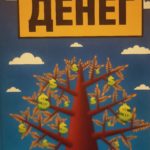
Lietaer B
Будущее денег - новый путь к богатству, полноценному труду и более мудрому миру (The Future of Money) Book
AST, 2007, ISBN: 9785170429776.
@book{Lietaer2007,
title = {Будущее денег - новый путь к богатству, полноценному труду и более мудрому миру (The Future of Money)},
author = {Bernard Lietaer},
isbn = {9785170429776},
year = {2007},
date = {2007-01-01},
urldate = {2007-01-01},
pages = {493},
publisher = {AST},
abstract = {"Плавая в волнах денег" как рыбы, мы не задумываемся о своей "денежной среде обитания ". Автор этой книги, известный специалист в области финансов Бернар Лиетар, помогает читателю стать "летучей рыбой", подняться над привычным окружением, чтобы понять сущность денег и увидеть возможные сценарии их, а значит, и нашего будущего. Причем делает он это не в академической манере, а в форме своеобразного бестселлера, со множеством занимательных отступлений. Книга раскрывает не сведущим в этой области людям глаза на то, чем они расплачиваются каждый день. Однако и специалисты получат огромное удовольствие от оригинального стиля изложения серьезных и архиважных для человечества проблем.},
keywords = {},
pubstate = {published},
tppubtype = {book}
}
Ardron M; Lietaer B
Complementary Currency Innovation: self-guarantee in peer-to-peer currencies Journal Article
In: International Journal of Community Currency Research, vol. 10, pp. 1-7, 2006.
@article{Ardron2006,
title = {Complementary Currency Innovation: self-guarantee in peer-to-peer currencies},
author = {Mitra Ardron and Bernard Lietaer},
url = {https://bernard-lietaer.org/wp-content/uploads/2022/07/2006-Complementary-Currency-Innovation-self-guarantee-in-peer-to-peer-currencies-Ardron-Lietaer-annotated.pdf},
year = {2006},
date = {2006-01-01},
urldate = {2006-01-01},
journal = {International Journal of Community Currency Research},
volume = {10},
pages = {1-7},
abstract = {The WAT system, as used in Japan, allows for businesses to issue their own tickets (IOU's) which can circulate as a complementary currency within a community. This paper proposes a variation on that model, where the issuer of a ticket can offer a guarantee, in the form of some goods or services. The difference in value, along with a reasonable acceptance that the issuer is capable of delivering the service or goods, allows for a higher degree of confidence in the ticket, and therefore a greater liquidity.},
keywords = {},
pubstate = {published},
tppubtype = {article}
}
Lietaer B
A Proposal for a Brazilian Education Complementary Currency [the "Saber"] Journal Article
In: International Journal of Community Currency Research, vol. 10, pp. 18-23, 2006.
@article{Lietaer2006a,
title = {A Proposal for a Brazilian Education Complementary Currency [the "Saber"]},
author = {Bernard Lietaer},
url = {https://bernard-lietaer.org/wp-content/uploads/2022/07/2006-A-Proposal-for-a-Brazilian-Education-Complementary-Currency-Lietaer-annotated.pdf},
year = {2006},
date = {2006-01-01},
urldate = {2006-01-01},
journal = {International Journal of Community Currency Research},
volume = {10},
pages = {18-23},
keywords = {},
pubstate = {published},
tppubtype = {article}
}
Hudon M; Lietaer B
"Natural savings": a new microsavings product for inflationary environments. - How to save forests with savings for and by the poor? Journal Article
In: Savings and Development, vol. 30, iss. 4, pp. 357-380, 2006, ISSN: 03934551.
@article{Hudon2006,
title = {"Natural savings": a new microsavings product for inflationary environments. - How to save forests with savings for and by the poor?},
author = {Marek Hudon and Bernard Lietaer},
url = {https://www.jstor.org/stable/25830941},
issn = {03934551},
year = {2006},
date = {2006-01-01},
urldate = {2006-01-01},
journal = {Savings and Development},
volume = {30},
issue = {4},
pages = {357-380},
abstract = {Decentralized sustainable resource management in developing countries is important both from a poverty-reduction and an ecological viewpoint. At the same time, no financial instrument is available that enables small savings to be protected against the vagaries of monetary instabilities and inflation. This paper proposes a solution that would address all three issues simultaneously: an inflation-proof savings instrument, fully backed by the organic growth process of a local resource, which at the same time gives a market-based financial incentive to protect that natural resource. A specific example involving sustainable forestry plantations in the Third World is provided.},
keywords = {},
pubstate = {published},
tppubtype = {article}
}
Lietaer B; Hallsmith G
Community Currency Guide working_paper
2006.
@working_paper{Lietaer2006,
title = {Community Currency Guide},
author = {Bernard Lietaer and Gwendolyn Hallsmith},
url = {https://bernard-lietaer.org/wp-content/uploads/2022/07/2006-Community-Currency-Guide-Lietaer-Hallsmith-annotated.pdf},
year = {2006},
date = {2006-01-01},
urldate = {2006-01-01},
pages = {1-32},
abstract = {Very good introduction to local currencies with good references on money and websites},
keywords = {},
pubstate = {published},
tppubtype = {working_paper}
}
Lietaer B
Transforming Monetary Systems: Changing the Way Money Shapes Leadership book_section
2006.
@book_section{Lietaer2006c,
title = {Transforming Monetary Systems: Changing the Way Money Shapes Leadership},
author = {Bernard Lietaer},
editor = {Walter Link and Thais Corral and Mark Gerzon},
url = {https://bernard-lietaer.org/wp-content/uploads/2022/07/2006-Transforming-Monetary-Systems-Changing-the-Way-Money-Shapes-Leadership-Lietaer-annotated.pdf},
year = {2006},
date = {2006-01-01},
urldate = {2006-01-01},
journal = {Leadership is Global: Co-Creating a More Humane and Sustainable World},
pages = {319-330},
publisher = {Shinnyo-en Foundation},
keywords = {},
pubstate = {published},
tppubtype = {book_section}
}
Lietaer B
An Enhanced Automated Carbon Exchange (EACE) book_section
2006.
@book_section{Lietaer2006b,
title = {An Enhanced Automated Carbon Exchange (EACE)},
author = {Bernard Lietaer},
url = {https://bernard-lietaer.org/wp-content/uploads/2022/07/2006-An-Enhanced-Automated-Carbon-Exchange-EACE-Lietaer-annotated.pdf},
year = {2006},
date = {2006-01-01},
urldate = {2006-01-01},
journal = {Outils Monétaires - Outils D'Ecologie Territoriale: Quels Liens? Quelles Convergences?},
publisher = {Fondation Charles Léopold Mayer},
keywords = {},
pubstate = {published},
tppubtype = {book_section}
}
Lietaer B
Египетский прецедент magazine_article
2006.
@magazine_article{Lietaer2006d,
title = {Египетский прецедент},
author = {Bernard Lietaer},
url = {http://artifact.org.ru/proshloe-fas-i-profil-2/detalirovka-voprosov-globalnoy-teorii/60-lietar-b-egipetskij-pretsedent.html?highlight=WyJsaWV0YWVyIl0=},
year = {2006},
date = {2006-01-01},
urldate = {2006-01-01},
journal = {Art&Fact},
pages = {online},
keywords = {},
pubstate = {published},
tppubtype = {magazine_article}
}
Lietaer B
2006.
@book_section{Lietaer2006e,
title = {Des monnaies pour les communautés et les régions biogéographiques : un outil décisif pour la redynamisation régionale au XXI e siècle},
author = {Bernard Lietaer},
editor = {Jérôme Blanc},
url = {https://bernard-lietaer.org/wp-content/uploads/2022/07/2006-Des-monnaies-pour-les-communautes-et-les-regions-biogeographiques-un-outil-decisif-pour-la-redynamisation-regionale-au-XXI-annotated.pdf},
year = {2006},
date = {2006-01-01},
urldate = {2006-01-01},
journal = {Exclusion et liens financiers: Monnaies sociales},
pages = {31},
publisher = {Économica},
abstract = {Ce texte mettra l’accent sur les raisons pour lesquelles les monnaies complémentaires constituent un élément nécessaire à la réussite de la redynamisation régionale, en particulier par le biais de la revitalisation des communautés régionales. Nous commencerons par jeter un coup d’œil sur la situation d’ensemble qui explique pourquoi une telle redynamisation est devenue aujourd’hui si importante. Ensuite, nous proposerons deux études de cas qui expliquent le rôle que joue la monnaie dans ce processus, un exemple négatif et un exemple positif. Enfin, nous donnerons une vue d’ensemble des précédents historiques de ces monnaies en France. Cette présentation sera complétée par un cadre conceptuel expliquant les résultats de ces études de cas.},
keywords = {},
pubstate = {published},
tppubtype = {book_section}
}
Lietaer B
Währungsinnovationen als riskoreduzierende Anreizsysteme Journal Article
In: NET, vol. 12, pp. 79-88, 2006, ISBN: 3-033-00131-9.
@article{Lietaer2006g,
title = {Währungsinnovationen als riskoreduzierende Anreizsysteme},
author = {Bernard Lietaer},
url = {https://bernard-lietaer.org/wp-content/uploads/2022/09/GCN-NET-12-06.pdf},
isbn = {3-033-00131-9},
year = {2006},
date = {2006-01-01},
urldate = {2006-01-01},
journal = {NET},
volume = {12},
pages = {79-88},
keywords = {},
pubstate = {published},
tppubtype = {article}
}
Lietaer B
The Future of Global Economy - The Terra Currency Journal Article
In: Humanitad, vol. 1, iss. 1, pp. 30-36, 2006.
@article{Lietaer2006h,
title = {The Future of Global Economy - The Terra Currency},
author = {Bernard Lietaer},
url = {https://bernard-lietaer.org/wp-content/uploads/2022/09/Humantad-2006.pdf},
year = {2006},
date = {2006-01-01},
urldate = {2006-01-01},
journal = {Humanitad},
volume = {1},
issue = {1},
pages = {30-36},
keywords = {},
pubstate = {published},
tppubtype = {article}
}
Hallsmith G; Lovins L H; Miller M; Lietaer B; Juniper C; Fawbush W
Guide to Community Development Book
Laser - Local Action for Sustainable Economic Renewal, 2006.
@book{Hallsmith2006,
title = {Guide to Community Development},
author = {Gwendolyn Hallsmith and L Hunter Lovins and Michael Miller and Bernard Lietaer and Christopher Juniper and Wayne Fawbush},
editor = {Natural Capitalism Solutions and Global Community Initiatives and America's Development Foundation},
url = {https://bernard-lietaer.org/wp-content/uploads/2022/09/LASER-guide-linked-to-GCI.pdf},
year = {2006},
date = {2006-01-01},
urldate = {2006-01-01},
publisher = {Laser - Local Action for Sustainable Economic Renewal},
keywords = {},
pubstate = {published},
tppubtype = {book}
}
Lietaer B
An Integral View on Money and Financial Crashes working_paper
2005.
@working_paper{Lietaer2005,
title = {An Integral View on Money and Financial Crashes},
author = {Bernard Lietaer},
url = {https://bernard-lietaer.org/wp-content/uploads/2022/07/2005-An-Integral-View-on-Money-and-Financial-Crashes-Lietaer-annotated.pdf},
year = {2005},
date = {2005-01-01},
urldate = {2005-01-01},
keywords = {},
pubstate = {published},
tppubtype = {working_paper}
}
Brunnhuber S; Lietaer B
Economics as an Evolutionary System - Psychological Development and Economic Behaviour Journal Article
In: Evolutionary and Institutional Economics Review, vol. 2, pp. 113–139, 2005.
@article{Brunnhuber2005,
title = {Economics as an Evolutionary System - Psychological Development and Economic Behaviour},
author = {Stefan Brunnhuber and Bernard Lietaer},
url = {https://doi.org/10.14441/eier.2.113},
year = {2005},
date = {2005-01-01},
urldate = {2005-01-01},
journal = {Evolutionary and Institutional Economics Review},
volume = {2},
pages = {113–139},
keywords = {},
pubstate = {published},
tppubtype = {article}
}

Lietaer B
El futuro del dinero - cómo crear nueva riqueza, trabajo y un mundo más sensato (The Future of Money) Book
Longseller -Errepar, 2005, ISBN: 9789875506251.
@book{Lietaer2005a,
title = {El futuro del dinero - cómo crear nueva riqueza, trabajo y un mundo más sensato (The Future of Money)},
author = {Bernard Lietaer},
isbn = {9789875506251},
year = {2005},
date = {2005-01-01},
urldate = {2005-01-01},
pages = {511},
publisher = {Longseller -Errepar},
abstract = {Translation of: Future of money.},
keywords = {},
pubstate = {published},
tppubtype = {book}
}
Lietaer B
Une Vue Intégrale sur la Monnaie et les Crashs Financiers Journal Article
In: 2005.
@article{Lietaer2005b,
title = {Une Vue Intégrale sur la Monnaie et les Crashs Financiers},
author = {Bernard Lietaer},
url = {https://bernard-lietaer.org/wp-content/uploads/2022/07/2005-Une-Vue-Integrale-sur-la-Monnaie-et-les-Crashs-Financiers-Lietaer-annotated.pdf},
year = {2005},
date = {2005-01-01},
urldate = {2005-01-01},
keywords = {},
pubstate = {published},
tppubtype = {article}
}
Lietaer B
Regio und Terra. Neue Wege aus der Finanz- und Wirtschaftskrise book_section
2005.
@book_section{Lietaer2005d,
title = {Regio und Terra. Neue Wege aus der Finanz- und Wirtschaftskrise},
author = {Bernard Lietaer},
editor = {Hans-Joachim Gögl and Josef Kittinger},
url = {https://bernard-lietaer.org/wp-content/uploads/2022/09/Tage-der-Utopie-2005.pdf},
isbn = {3 902249 81 1},
year = {2005},
date = {2005-01-01},
urldate = {2005-01-01},
journal = {Tage der Utopie - Entwürfe für eine gute Zukunft},
pages = {50-71},
publisher = {Hämmerle},
keywords = {},
pubstate = {published},
tppubtype = {book_section}
}
Gründler E; Lietaer B
Geld, Wirtschaft und das Kollektive Unbewusste magazine_article
2005.
@magazine_article{nokey,
title = {Geld, Wirtschaft und das Kollektive Unbewusste},
author = {Elisabeth Gründler and Bernard Lietaer},
url = {https://bernard-lietaer.org/wp-content/uploads/2022/09/KursKontakte-Kurse-Seminare-und-Ausbildungen-fur-inneres-Wachstum-Geld-Wirtschaft-und-das-kollektive-Unbewusste.pdf},
year = {2005},
date = {2005-01-01},
urldate = {2005-01-01},
journal = {KursKontakte (124)},
keywords = {},
pubstate = {published},
tppubtype = {magazine_article}
}
Gründler E; Lietaer B
Nachhaltig und profitabel wirtschaften dank komplementärem Geld book_section
2005.
@book_section{nokey,
title = {Nachhaltig und profitabel wirtschaften dank komplementärem Geld},
author = {Elisabeth Gründler and Bernard Lietaer},
editor = {Elisabeth Gründler},
url = {https://bernard-lietaer.org/wp-content/uploads/2022/09/Money-Museum-19-40.pdf},
year = {2005},
date = {2005-01-01},
urldate = {2005-01-01},
journal = {Komplementäres Geld - Vorteile, Erscheinungsformen und Funktionsweisen},
pages = {19-40},
publisher = {Sunflower Foundation},
edition = {MoneyMuseum},
keywords = {},
pubstate = {published},
tppubtype = {book_section}
}

Lietaer B; Belgin S M
Of Human Wealth - Beyond Greed & Scarcity Book
Human Wealth Books and Talks, 2004, ISBN: 0974584800.
@book{Lieater2004,
title = {Of Human Wealth - Beyond Greed & Scarcity},
author = {Bernard Lietaer and Stephen M. Belgin},
url = {https://bernard-lietaer.org/wp-content/uploads/2022/07/2004-Of-Human-Wealth-Beyond-Greed-Scarcity-Lieater-Belgin-annotated.pdf},
isbn = {0974584800},
year = {2004},
date = {2004-01-01},
urldate = {2004-01-01},
pages = {272},
publisher = {Human Wealth Books and Talks},
keywords = {},
pubstate = {published},
tppubtype = {book}
}
Lietaer B
The Terra TRC White Paper working_paper
2004.
@working_paper{Lietaer2004a,
title = {The Terra TRC White Paper},
author = {Bernard Lietaer},
url = {https://bernard-lietaer.org/wp-content/uploads/2022/07/2004-The-Terra-TRC-White-Paper-Lietaer-annotated.pdf},
year = {2004},
date = {2004-01-01},
urldate = {2004-01-01},
pages = {1-19},
institution = {Access Foundation},
keywords = {},
pubstate = {published},
tppubtype = {working_paper}
}
Lietaer B
Complementary currencies in Japan today: History, originality and relevance Journal Article
In: International Journal of Community Currency Research, vol. 8, pp. 1-23, 2004.
@article{Lietaer2004,
title = {Complementary currencies in Japan today: History, originality and relevance},
author = {Bernard Lietaer},
url = {https://bernard-lietaer.org/wp-content/uploads/2022/07/2004-Complementary-currencies-in-Japan-today-History-originality-and-relevance-Lietaer-annotated.pdf},
year = {2004},
date = {2004-01-01},
urldate = {2004-01-01},
journal = {International Journal of Community Currency Research},
volume = {8},
pages = {1-23},
abstract = {Since 1995 the number of experiments with complementary currencies in Japan has exploded. Not only is Japan the country in the world with the most systems in operation today, but also the nation with the greatest diversity of such experiments. The aim of this paper is to bring to light the strata of the heterogeneous Japanese schools of complementary currencies, and describe how they relate to each other. It provides a description of the different models used in each school, as well as their numbers and locations. Finally, the most original models are highlighted, and the relevance of these experiments for the rest of the world is evaluated.},
keywords = {},
pubstate = {published},
tppubtype = {article}
}
Lietaer B; Brunnhuber S
Beyond Meadows - The Money-System as the Overlooked Connection towards a Sustainable Future Journal Article
In: Shiga Anals, pp. 93-108, 2004.
@article{Lietaer2004b,
title = {Beyond Meadows - The Money-System as the Overlooked Connection towards a Sustainable Future},
author = {Bernard Lietaer and Stefan Brunnhuber},
url = {https://bernard-lietaer.org/wp-content/uploads/2022/07/2004-Beyond-Meadows-The-Money-System-as-the-Overlooked-Connection-towards-a-Sustainable-Future-Lietaer-Brunnhuber-annotated.pdf},
year = {2004},
date = {2004-01-01},
urldate = {2004-01-01},
journal = {Shiga Anals},
pages = {93-108},
keywords = {},
pubstate = {published},
tppubtype = {article}
}

Lietaer B
เงินแห่งอนาคต (The Future of Money) Book
Suan Nguen Mee Ma Co., 2004.
@book{Lietaer2004c,
title = {เงินแห่งอนาคต (The Future of Money)},
author = {Bernard Lietaer},
year = {2004},
date = {2004-01-01},
urldate = {2004-01-01},
publisher = {Suan Nguen Mee Ma Co.},
keywords = {},
pubstate = {published},
tppubtype = {book}
}

Kennedy M; Lietaer B
Regionalwährungen - Neue Wege zu nachhaltigem Wohlstand Book
Riemann, 2004, ISBN: 978-3570500521.
@book{Kennedy2004,
title = {Regionalwährungen - Neue Wege zu nachhaltigem Wohlstand},
author = {Margrit Kennedy and Bernard Lietaer},
isbn = {978-3570500521},
year = {2004},
date = {2004-01-01},
urldate = {2004-01-01},
pages = {304},
publisher = {Riemann},
abstract = {Das so selbstverständlich gewordene und scheinbar gut funktionierende kapitalistische Wirtschaftssystem gerät ins Stocken. Eine Arbeitslosenquote von über 10 Prozent stellt nicht nur unsere Sozialsysteme vor eine Zerreißprobe, sondern bringt die öffentlichen Haushalte in größte Not. Wenn einerseits immer mehr produziert, andererseits Geld für die überwiegende Mehrheit zunehmend knapp wird, muss nach Erklärungen für diesen scheinbaren Widerspruch gesucht werden. Höchste Zeit, grundsätzliche Fragen zu stellen! Margrit Kennedy und Bernard Lietaer, die sich beide schon seit zwei Jahrzehnten mit der Thematik unserer Geldqualität auseinander setzen, untersuche},
keywords = {},
pubstate = {published},
tppubtype = {book}
}

Lietaer B
돈 그 영혼과 진실 돈의 본질과 역사를 찾아서 (Mysterium Geld) Book
참솔 (Chamsol), 2004, ISBN: 9788988430378.
@book{Lietaer2004d,
title = {돈 그 영혼과 진실 돈의 본질과 역사를 찾아서 (Mysterium Geld)},
author = {Bernard Lietaer},
isbn = {9788988430378},
year = {2004},
date = {2004-01-01},
urldate = {2004-01-01},
pages = {485},
publisher = {참솔 (Chamsol)},
keywords = {},
pubstate = {published},
tppubtype = {book}
}
Lietaer B
Terra oder die Zukunft des Geldes book_section
2003.
@book_section{Lietaer2003b,
title = {Terra oder die Zukunft des Geldes},
author = {Bernard Lietaer},
editor = {Dirk Baecker},
year = {2003},
date = {2003-01-01},
urldate = {2003-01-01},
journal = {Viele Gelder},
keywords = {},
pubstate = {published},
tppubtype = {book_section}
}
Lietaer B; DeMeulenaere S
Sustaining cultural vitality in a globalizing world: the Balinese example Journal Article
In: International Journal of Social Economics, vol. 30, iss. 9, pp. 967-984, 2003, ISSN: 0306-8293.
@article{Lietaer2003a,
title = {Sustaining cultural vitality in a globalizing world: the Balinese example},
author = {Bernard Lietaer and Stephen DeMeulenaere},
url = {https://bernard-lietaer.org/wp-content/uploads/2022/07/2003-Sustaining-cultural-vitality-in-a-globalizing-world-the-Balinese-example-Lietaer-Meulenaere-annotated.pdf},
doi = {10.1108/03068290310487531},
issn = {0306-8293},
year = {2003},
date = {2003-01-01},
urldate = {2003-01-01},
journal = {International Journal of Social Economics},
volume = {30},
issue = {9},
pages = {967-984},
abstract = {It is generally accepted that massive tourism and a vibrant indigenous culture are mutually exclusive. Bali has so far proven to be an exception to this rule. This article explores a hitherto overlooked socio-economic mechanism behind that exception. It is a dual complementary currency system used for centuries by highly decentralized and democratic decision-making organizations. The reasons why such a dual currency system is so effective in mobilizing popular cultural creativity is investigated, and a systems framework is proposed to determine the conditions under which this model could be applicable outside of Bali. This framework is then tested with a second case study: traditional shell currencies in Papua New Guinea. Finally, some potential applications in areas in the world other than traditional cultures are portrayed.},
keywords = {},
pubstate = {published},
tppubtype = {article}
}
Lietaer B
A World in Balance? Journal Article
In: Reflections: The SoL Journal, vol. 4, iss. 4, pp. 6-16, 2003, ISSN: 15360148.
@article{Lietaer2003,
title = {A World in Balance?},
author = {Bernard Lietaer},
url = {http://www.ingentaselect.com/rpsv/cgi-bin/cgi?ini=xref&body=linker&reqdoi=10.1162/152417303322004157https://bernard-lietaer.org/wp-content/uploads/2022/07/2003-A-World-in-Balance-Lietaer-annotated.pdf},
doi = {10.1162/152417303322004157},
issn = {15360148},
year = {2003},
date = {2003-01-01},
urldate = {2003-01-01},
journal = {Reflections: The SoL Journal},
volume = {4},
issue = {4},
pages = {6-16},
keywords = {},
pubstate = {published},
tppubtype = {article}
}
Lietaer B; DeMeulenaere S
Kedinamisan Kehidupan Budaya yang Berkelanjutan dalam Era Globalisasi Dunia: Masyarakat Bali Sebagai Contoh working_paper
2003.
@working_paper{Lietaer2003c,
title = {Kedinamisan Kehidupan Budaya yang Berkelanjutan dalam Era Globalisasi Dunia: Masyarakat Bali Sebagai Contoh},
author = {Bernard Lietaer and Stephen DeMeulenaere},
url = {https://bernard-lietaer.org/wp-content/uploads/2022/07/2003-Kedinamisan-Kehidupan-Budaya-yang-Berkelanjutan-dalam-Era-Globalisasi-Dunia-Masyarakat-Bali-Sebagai-Contoh-Lietaer-DeMeulenaer-annotated.pdf},
year = {2003},
date = {2003-01-01},
urldate = {2003-01-01},
abstract = {Sudah diterima secara umum bahwa turisme yang sangat besar dan kemenarikan budaya asli adalah saling mempengaruhi. Bali sejauh ini terbukti menjadi sebuah perkecualian bila dilihat dari pandangan ini. Tulisan ini menceritakan lebih lanjut pengamatan cara kerja ekonomi sosial di belakangnya sampai waktu ini, mengapa sampai bisa dikecualikan. Di sini terdapat sistem keragaman mata uang yang digunakan berabad-abad lamanya oleh organisasi pembuat keputusan yang terpusat dan demokratis. Alasan mengapa digunakannya sistem alat tukar yang beragam ini adalah sistem ini terbukti sangat efektif dalam menggerakkan kreatifitas budaya yang populer; dan pada waktu mendatang kerangka kerja sistem ini untuk menjelaskan kondisi dimana model ini bisa diterapkan di luar Bali. Kerangka kerja ini juga sudah dicoba di studi kasus yang kedua: alat tukar tradisional kerang di Papua New Guinea. Pada akhirnya, beberapa penerapan yang potensial di beberapa tempat di dunia selain alat tukar tradisional bisa diketahui. Kata},
keywords = {},
pubstate = {published},
tppubtype = {working_paper}
}
Kirfel-Rühle L; Roemer-Blum S; Lietaer B
Terra oder die Zukunft des Geldes book_section
2003.
@book_section{nokey,
title = {Terra oder die Zukunft des Geldes},
author = {L. Kirfel-Rühle and S. Roemer-Blum and Bernard Lietaer},
editor = {Dirk Baecker},
url = {https://bernard-lietaer.org/wp-content/uploads/2022/09/Viele-Gelder.pdf},
isbn = {3 931659 38 0},
year = {2003},
date = {2003-01-01},
urldate = {2003-01-01},
journal = {Viele Gelder},
pages = {31-74},
publisher = {Kadmos},
keywords = {},
pubstate = {published},
tppubtype = {book_section}
}
Brunnhuber S; Lietaer B
Bewusstsein und Geld - Ein Beitrag zu einer evolutionären Ökonomie Journal Article
In: Zeitschrift für Sozialökonomie, vol. 40, iss. 136, pp. 21-22, 2003, ISSN: 0721-0752.
@article{Brunnhuber2003,
title = {Bewusstsein und Geld - Ein Beitrag zu einer evolutionären Ökonomie},
author = {Stefan Brunnhuber and Bernard Lietaer},
url = {https://www.sozialoekonomie-online.de/archiv/zfsoe-online-archiv-folge-136-143.html
https://bernard-lietaer.org/wp-content/uploads/2022/09/Brunnhuber-Lietaer-ZfSOe-136-komplett.pdf},
issn = {0721-0752},
year = {2003},
date = {2003-01-01},
urldate = {2003-01-01},
journal = {Zeitschrift für Sozialökonomie},
volume = {40},
issue = {136},
pages = {21-22},
abstract = {Veränderungen in der Bewusstseinsentwicklung verlaufen häufig in ab-grenzbaren Sequenzen, welche man als präkon-ventionell, konventionell und postkonventionellbeschreiben kann. Jede dieser Ebenen ist durchspezifische Aspekte in der Selbststruktur, desDenkens, des Affektapparats und der kommuni-kativen Fähigkeiten gekennzeichnet. Wenn mannun die geschichtliche Entwicklung ökonomi-scher Systeme und hier insbesondere die Geld-wirtschaft innerhalb dieser Sequenz betrachtet,wird der aktuelle Stand der ökonomischen Modell-bildung sichtbar und zugleich kann eine möglicheEntwicklung im Hinblick auf eine Wissensökono-mie aufgezeigt werden.},
keywords = {},
pubstate = {published},
tppubtype = {article}
}
Gründler E; Lietaer B
Mein Weg ist Karma-Yoga magazine_article
2003.
@magazine_article{nokey,
title = {Mein Weg ist Karma-Yoga},
author = {Elisabeth Gründler and Bernard Lietaer},
url = {https://bernard-lietaer.org/wp-content/uploads/2022/09/KursKontakte-Mein-Weg-ist-Karma-Yoga.pdf},
year = {2003},
date = {2003-01-01},
urldate = {2003-01-01},
journal = {KursKontakte (129)},
keywords = {},
pubstate = {published},
tppubtype = {magazine_article}
}
Lietaer B
Ten Questions with Bernard Lietaer magazine_article
2003.
@magazine_article{Lietaer2003e,
title = {Ten Questions with Bernard Lietaer},
author = {Bernard Lietaer},
url = {https://bernard-lietaer.org/wp-content/uploads/2022/09/Journal-Financial-Planning-2003.pdf},
year = {2003},
date = {2003-01-01},
urldate = {2003-01-01},
journal = {Journal of Financial Planning},
keywords = {},
pubstate = {published},
tppubtype = {magazine_article}
}
Morrison L; Lietaer B
Futures Trading newspaper_article
2002.
@newspaper_article{nokey,
title = {Futures Trading},
author = {Lennox Morrison and Bernard Lietaer},
url = {https://bernard-lietaer.org/wp-content/uploads/2022/09/Spektrum-Magazine.pdf},
year = {2002},
date = {2002-02-04},
urldate = {2002-02-04},
journal = {Spektrum Magazin (Scotland on Sunday, 4. Feb)},
pages = {20-24},
keywords = {},
pubstate = {published},
tppubtype = {newspaper_article}
}
"René Bartiral (Bernard Lietaer)" ; Wessel S
Möglicher Beitrag der Geobiologie Journal Article
In: Planet Alpen, vol. 3, iss. 3, pp. 122-137, 2002.
@article{Wessel2002,
title = {Möglicher Beitrag der Geobiologie},
author = {"René Bartiral (Bernard Lietaer)" and Sonja Wessel},
url = {https://bernard-lietaer.org/wp-content/uploads/2022/07/2002-Moglicher-Beitrag-der-Geobiologie-Lietaer-Wessel-annotated.pdf},
year = {2002},
date = {2002-01-01},
urldate = {2002-01-01},
journal = {Planet Alpen},
volume = {3},
issue = {3},
pages = {122-137},
keywords = {},
pubstate = {published},
tppubtype = {article}
}
Lietaer B
Schwarze Madonnen Journal Article
In: Tattva Viveka, vol. 17, pp. 48-58, 2002.
@article{Lietaer2002,
title = {Schwarze Madonnen},
author = {Bernard Lietaer},
url = {https://bernard-lietaer.org/wp-content/uploads/2022/07/2002-Schwarze-Madonnen-Lietaer-annotated.pdf},
year = {2002},
date = {2002-01-01},
urldate = {2002-01-01},
journal = {Tattva Viveka},
volume = {17},
pages = {48-58},
keywords = {},
pubstate = {published},
tppubtype = {article}
}
Lietaer B
The Future of Payment Systems working_paper
2002.
@working_paper{Lietaer2002c,
title = {The Future of Payment Systems},
author = {Bernard Lietaer},
url = {https://bernard-lietaer.org/wp-content/uploads/2022/09/Unisys-2002.pdf},
year = {2002},
date = {2002-01-01},
urldate = {2002-01-01},
pages = {44},
institution = {Unisys Corporation},
keywords = {},
pubstate = {published},
tppubtype = {working_paper}
}

Lietaer B
Die Welt des Geldes: Das Aufklärungsbuch Book
Arena, 2001.
@book{Lietaer2001a,
title = {Die Welt des Geldes: Das Aufklärungsbuch},
author = {Bernard Lietaer},
year = {2001},
date = {2001-01-01},
urldate = {2001-01-01},
publisher = {Arena},
keywords = {},
pubstate = {published},
tppubtype = {book}
}
Lietaer B
Complementary currencies can lead us towards a more equitable future magazine_article
2001.
@magazine_article{Lietaer2001,
title = {Complementary currencies can lead us towards a more equitable future},
author = {Bernard Lietaer},
url = {https://www.resurgence.org/magazine/issue253-economics-of-place.html},
year = {2001},
date = {2001-01-01},
urldate = {2001-01-01},
journal = {Resurgence Magazine},
volume = {207},
keywords = {},
pubstate = {published},
tppubtype = {magazine_article}
}

Lietaer B
The Future Of Money: Creating New Wealth, Work and a Wiser World Book
Arrow Books, 2001, ISSN: 0717-6163.
@book{Lietaer2002a,
title = {The Future Of Money: Creating New Wealth, Work and a Wiser World},
author = {Bernard Lietaer},
url = {https://ipfs.io/ipfs/QmQPcT5LV7ugPYQ8wG2DsDChXwmdWwPYVJ1qHfFiqxLhMT?filename=The%20Future%20Of%20Money%20-%20Bernard%20Lietaer.epub},
issn = {0717-6163},
year = {2001},
date = {2001-01-01},
urldate = {2001-01-01},
pages = {384},
publisher = {Arrow Books},
keywords = {},
pubstate = {published},
tppubtype = {book}
}
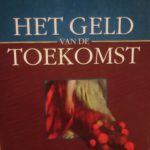
Lietaer B
Het geld van de toekomst : een nieuwe visie op welzijn en een humanere wereld (The Future of Money) Book
Meulenhoff Boekerij, 2001, ISBN: 9022528197.
@book{Lietaer2001b,
title = {Het geld van de toekomst : een nieuwe visie op welzijn en een humanere wereld (The Future of Money)},
author = {Bernard Lietaer},
editor = {R. J. W. Beuker},
isbn = {9022528197},
year = {2001},
date = {2001-01-01},
urldate = {2001-01-01},
publisher = {Meulenhoff Boekerij},
keywords = {},
pubstate = {published},
tppubtype = {book}
}
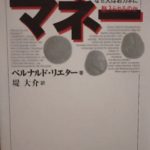
Lietaer B
マネー―なぜ人はおカネに魅入られるのか (Mysterium Geld) Book
ダイヤモンド社 (Diamond), 2001, ISBN: 9784478210369.
@book{Lietaer2001c,
title = {マネー―なぜ人はおカネに魅入られるのか (Mysterium Geld)},
author = {Bernard Lietaer},
isbn = {9784478210369},
year = {2001},
date = {2001-01-01},
urldate = {2001-01-01},
pages = {430},
publisher = {ダイヤモンド社 (Diamond)},
keywords = {},
pubstate = {published},
tppubtype = {book}
}
Gründler E C; Lietaer B
Eine Welt, eine Währung und mehr Wert magazine_article
2001.
@magazine_article{Lietaer2001d,
title = {Eine Welt, eine Währung und mehr Wert},
author = {Elisabeth C. Gründler and Bernard Lietaer},
url = {https://bernard-lietaer.org/wp-content/uploads/2022/07/2001-Eine-Welt-eine-Wahrung-und-mehr-Wert-Grundler-Lietaer-annotated.pdf},
year = {2001},
date = {2001-01-01},
urldate = {2001-01-01},
journal = {brand eins Wirtschaftsmagazin},
volume = {1},
number = {1},
issue = {7},
pages = {116-121},
abstract = {Unser Geldsystem ist destruktiv. Sagt wer? Bernard Lietaer. Einer der Väter des Euros. Der anerkannte Experte will die Macht des Geldes brechen, indem er es von Zinsen und Gier befreit. Der Terra soll aus schlechtem Geld Gutes machen. Im brand eins-Interview erzählt Lietaer, warum das nötig ist und wie das funktionieren soll.},
keywords = {},
pubstate = {published},
tppubtype = {magazine_article}
}
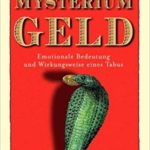
Lietaer B
Mysterium Geld: Bedeutung und Wirkungsweise eines Tabus Book
Riemann, 2000.
@book{Lietaer2000b,
title = {Mysterium Geld: Bedeutung und Wirkungsweise eines Tabus},
author = {Bernard Lietaer},
year = {2000},
date = {2000-01-01},
urldate = {2000-01-01},
publisher = {Riemann},
keywords = {},
pubstate = {published},
tppubtype = {book}
}
Lietaer B
Healing Money: A High-Leverage Strategy to Create a Sustainable World working_paper
2000.
@working_paper{Lietaer2000a,
title = {Healing Money: A High-Leverage Strategy to Create a Sustainable World},
author = {Bernard Lietaer},
url = {https://bernard-lietaer.org/wp-content/uploads/2022/07/2000-Healing-Money-A-High-Leverage-Strategy-to-Create-a-Sustainable-World-Lietaer-annotated.pdf},
year = {2000},
date = {2000-01-01},
urldate = {2000-01-01},
keywords = {},
pubstate = {published},
tppubtype = {working_paper}
}
Reif A; Lietaer B
Ein globaler Währungszusammenbruch ist nicht auszuschließen magazine_article
2000.
@magazine_article{Lietaer2000c,
title = {Ein globaler Währungszusammenbruch ist nicht auszuschließen},
author = {Adelbert Reif and Bernard Lietaer},
url = {https://bernard-lietaer.org/wp-content/uploads/2022/07/2000-Ein-globaler-Wahrungszusammenbruch-ist-nicht-auszuschliesen-Lietaer-annotated.pdf},
year = {2000},
date = {2000-01-01},
urldate = {2000-01-01},
journal = {Conturen},
volume = {1},
issue = {2},
pages = {44-52},
keywords = {},
pubstate = {published},
tppubtype = {magazine_article}
}

Lietaer B
マネー崩壊 - 新しいコミュニティ通貨の誕生 (The Future of Money) Book
日本経済評論社 (Japan Economic Review), 2000, ISBN: 9784818813052.
@book{Lietaer2000d,
title = {マネー崩壊 - 新しいコミュニティ通貨の誕生 (The Future of Money)},
author = {Bernard Lietaer},
isbn = {9784818813052},
year = {2000},
date = {2000-01-01},
urldate = {2000-01-01},
pages = {340},
publisher = {日本経済評論社 (Japan Economic Review)},
abstract = {本書の問題意識は、「新千年紀」を迎えるにあたり、われわれはマネーの在り方を根本から問直さなければならないのではないか、ということである。この問題意識の根底には、単一化の方向に向かう貨幣部門のマネー経済化の流れと、多様化に向かうボランティア経済の流れの相克がある。その中で「持続可能な社会をどうやってつくりあげるのか?」本書は、その処方箋を大胆かつ新鮮な形でわれわれに提示している。 目次 : 第1部 お金と自分(自分のお金/ 今日のお金/ サイバー・ワールド―新たなお金の歩み/ 未来への五つのシナリオ)/ 第2部 自分のお金を選ぶ(仕事を可能にする通貨/ コミュニティをつむぐ通貨/ コミュニティ通貨と中央権力/ グローバル基準通貨―お金を持続可能にする/ 持続可能な豊かさへ向かって ほか)},
keywords = {},
pubstate = {published},
tppubtype = {book}
}
Raap J; Lietaer B
Nachhaltige Wirtschaft magazine_article
2000.
@magazine_article{Raap2000,
title = {Nachhaltige Wirtschaft},
author = {Jürgen Raap and Bernard Lietaer},
url = {https://bernard-lietaer.org/wp-content/uploads/2022/09/Kunstforum-2000.pdf},
year = {2000},
date = {2000-01-01},
urldate = {2000-01-01},
journal = {Kunstforum International (149)},
pages = {138-143},
keywords = {},
pubstate = {published},
tppubtype = {magazine_article}
}
Lietaer B
Die Alchemie des Geldes - Neue Erkenntnisse zu einem uralten Phänomen magazine_article
2000.
@magazine_article{Lietaer2000f,
title = {Die Alchemie des Geldes - Neue Erkenntnisse zu einem uralten Phänomen},
author = {Bernard Lietaer},
url = {http://www.miprox.de/Wirtschaft_allgemein/Die_Alchemie_des_Geldes.html
https://bernard-lietaer.org/wp-content/uploads/2022/09/Alchemie-des-Geldes.pdf},
year = {2000},
date = {2000-01-01},
urldate = {2000-01-01},
journal = {Tattva Viveka (15)},
abstract = {Dieser Artikel ist erschienen in der Tattva Viveka Nr. 15 Nehmen Sie einmal an, ein Freund würde Sie wählen lassen zwischen einem 20 DM-Schein und einem Stück Papier mit der Aufschrift »Ich verspreche, dem Inhaber dieses Papiers 20 DM zu bezahlen«. Welches von beiden würden Sie einstecken? Vielleicht kennen Sie Ihren Freund als ehrlichen und vertrauenswürdigen Menschen. Aber wenn Sie versuchen, den Zettel im Haushaltswarengeschäft gegen einen neuen Gartenschlauch einzutauschen, werden die Verkäufer nicht mitmachen. Sogar wenn die Verkäufer Ihren Freund ebenfalls kennen, werden sie daran zweifeln, daß sie ihre Lieferanten mit seiner Quittung bezahlen können. So nehmen Sie natürlich lieber den 20 DM-Schein, denn lebenslange Erfahrung hat Sie gelehrt, daß der 20 DM-Schein von jedermann als Gegenwert von 20 DM akzeptiert wird. Sie haben die feste Überzeugung-und das ist der Schlüssel bei der Sache-nicht daß die Banknote 20 DM wert ist, sondern daß jeder andere den Wert von 20 DM anerkennen wird. Es spielt im Grunde keine Rolle, was Sie über Ihr Geld denken, Sie wissen jederzeit, Sie können es ausgeben. Sie glauben, daß jeder andere glaubt, das Geld habe einen bestimmten Wert. Wir sprechen hier über eine »Überzeugung von einer Überzeugung«. Überzeugung und soziale Übereinkunft sind mächtig und praktisch unzerstörbar. In der Geschichte gibt es eine Fülle von Beispielen, daß Menschen lieber Folter und Tod gewählt haben, als ihre Überzeugungen aufzugeben. Wir wissen auch, daß jemand hartnäckig an einer Überzeugung festhalten kann, selbst wenn er mit reichlich Beweisen für das Gegenteil konfrontiert wird. Glauben und Überzeugung spielen somit eine beeindruckende Rolle in der menschlichen Psyche. Eine »Überzeugung von einer Überzeugung« ist indes etwas vollkommen anderes. Sie ist zerbrechlich und flüchtig. Mag sein, daß nichts meine Überzeugung erschüttern kann, aber meine Überzeugung von Ihrer Überzeugung kann durch ein Gerücht ausgehöhlt werden, durch eine unbestimmte Ahnung, ein Gefühl. Zudem ist eine Kette von Überzeugungen über Überzeugungen nur so stark wie ihr schwächstes Glied. Wenn ich denke, daß jemand am unteren Ende der Welt den Glauben an den mexikanischen Peso, den thailändischen Baht oder den russischen Rubel verloren hat, dann fürchte ich, daß es mit seinen Nachbarn bald genauso gehen könnte. Als Folge kann das ganze Kartenhaus zusammenfallen, wie es in Mexiko 1994 passierte, in Thailand Ende 1997 und in Rußland im August 1998. Das Spiel mit dem Geld ist, kurz gesagt, genau wie das Orakel in der griechischen Antike ein Spiel mit Glauben und Vertrauen. Wenn der Kaiser keine Kleider anhat (d. h., wenn eine »Vertrauenskrise« droht), hoffen die Eingeweihten inständig, daß kein argloser Bursche eine unvorsichtige Bemerkung machen wird. In solchen Situationen hilft eine Fassade von erhabenen Vertrauen, Mysterium, Etikette und Ritualen, die lange und zerbrechliche Kette der Überzeugungen intakt zu erhalten.},
keywords = {},
pubstate = {published},
tppubtype = {magazine_article}
}

Lietaer B
Das Geld der Zukunft (The Future of Money) Book
Riemann, 1999, ISBN: 3-570-50008-X.
@book{Lietaer1999,
title = {Das Geld der Zukunft (The Future of Money)},
author = {Bernard Lietaer},
isbn = {3-570-50008-X},
year = {1999},
date = {1999-01-01},
urldate = {1999-01-01},
pages = {477},
publisher = {Riemann},
keywords = {},
pubstate = {published},
tppubtype = {book}
}
Lietaer B; Douthwaite R
Foreword book_section
1999.
@book_section{Lietaera,
title = {Foreword},
author = {Bernard Lietaer and Richard Douthwaite},
editor = {Richard Douthwaite},
url = {https://bernard-lietaer.org/wp-content/uploads/2022/07/1999-Foreword-Lietaer-Douthwaite-annotated.pdf},
year = {1999},
date = {1999-01-01},
urldate = {1999-01-01},
journal = {The Ecology of Money},
pages = {1-3},
publisher = {Green Books},
abstract = {Foreword populations and the need for new regional development strategies. Both examples illustrate Douthwaite's points. Japan has one of the fastest aging populations of the developed world. By the year 2005, the population over 65 years of age will reach 18.5% of the total (a situation that Germany will face by 2006 the UK and France by 2016.) A special currency called Hureai Kippu (literally " Caring Relationship Tickets ") has been created by a group of 300 non-profit organizations. The unit of account is an hour of service. The people providing the services can accumulate the credits in a " healthcare time savings account " from which they may draw when they need credits for themselves, for example if they get sick. These credits complement the normal healthcare insurance program payable in Yen, the conventional Japanese national currency. In addition, many prefer to transfer part or all of their Hureai Kippu credits to their parents who may live in another part of the country. Two private electronic clearing houses have sprung up to perform such transfers. One particularly important finding has emerged. Because they have experienced a higher quality of care in their relationships with care-givers, the elderly tend to prefer the services provided by people paid in Hureai Kippu over those paid with the conventional Yen. The second application is potentially even more impressive. The Ministry of International Trade and Industry in Japan (MITI) has recently concluded that the future of Japan's development strategy will be based on " Silicon Valley " type specialized regional economies. And that the best tool to stimulate such regional development clusters are local " eco-money " systems. Four pilot projects have already tested this approach, and the results are convincing to the point that by end 1999 no less than forty such systems will be launched. Some of Japan's largest corporations (such as NTT and Oracle Japan) are involved in these experiments. The point about these two examples is that theory is way behind practice in this domain. People are innovating in the monetary domain, and are obtaining demonstrably positive results from it, while the majority of the policy makers remain still unaware about the potential of monetary inventions to solve their problems. I would compare today's non-conventional money domain to aeronautics when the Wright Brothers took their first flights. The first airplane builders didn't know why their contraptions were flying, but fly they did. And it took the New York Times more than four years to even mention the event (and then only because the President of the US was witnessing a demonstration). Nevertheless, nobody questions that the aeronautical industry has changed forever our way of life on this planet.},
keywords = {},
pubstate = {published},
tppubtype = {book_section}
}
Toms M; Lietaer B
The Future of Money book_section
1998.
@book_section{Lietaer1998,
title = {The Future of Money},
author = {Michael Toms and Bernard Lietaer},
editor = {Michael Toms},
url = {https://bernard-lietaer.org/wp-content/uploads/2022/07/1998-The-Future-of-Money-Toms-Lietaer-annotated.pdf},
isbn = {1-56170-458-X},
year = {1998},
date = {1998-01-01},
urldate = {1998-01-01},
journal = {Money, Money, Money: The Search for Wealth and the Pursuit of Happiness},
pages = {175-196},
publisher = {New Dimensions},
keywords = {},
pubstate = {published},
tppubtype = {book_section}
}
Gelder S; Lietaer B
Más Allá de la Codicia y la Escasez: El Futuro del Dinero working_paper
1998.
@working_paper{Lietaer1998a,
title = {Más Allá de la Codicia y la Escasez: El Futuro del Dinero},
author = {Sarah Gelder and Bernard Lietaer},
url = {https://bernard-lietaer.org/wp-content/uploads/2022/07/1998-Mas-Alla-de-la-Codicia-y-la-Escasez-El-Futuro-del-Dinero-van-Gelder-Lietaer-annotated.pdf},
year = {1998},
date = {1998-01-01},
urldate = {1998-01-01},
keywords = {},
pubstate = {published},
tppubtype = {working_paper}
}
Lietaer B
Electronic Money working_paper
1998.
@working_paper{Lietaer1998c,
title = {Electronic Money},
author = {Bernard Lietaer},
url = {https://bernard-lietaer.org/wp-content/uploads/2022/09/Electronic-Money-1998.pdf},
year = {1998},
date = {1998-01-01},
urldate = {1998-01-01},
pages = {59},
institution = {European Union Instituto de Prospectiva Tecnològica},
keywords = {},
pubstate = {published},
tppubtype = {working_paper}
}
Lietaer B
Internet Currencies for Virtual Communities working_paper
1997.
@working_paper{Lietaer1997,
title = {Internet Currencies for Virtual Communities},
author = {Bernard Lietaer},
url = {https://bernard-lietaer.org/wp-content/uploads/2022/07/1997-Internet-Currencies-for-Virtual-Communities-by-Bernard-Lietaer-How-Currency-can-Weave-or-Unravel-Community-Fabric-The-Net-an-I-annotated.pdf},
year = {1997},
date = {1997-01-01},
urldate = {1997-01-01},
keywords = {},
pubstate = {published},
tppubtype = {working_paper}
}
Gelder S; Lietaer B
Beyond Greed & Scarcity magazine_article
1997.
@magazine_article{Lietaer1997a,
title = {Beyond Greed & Scarcity},
author = {Sarah Gelder and Bernard Lietaer},
url = {https://bernard-lietaer.org/wp-content/uploads/2022/07/1997-Beyond-Greed-Scarcity-van-Gelder-Lietaer-annotated.pdf},
year = {1997},
date = {1997-01-01},
urldate = {1997-01-01},
journal = {Yes! Magazine},
issue = {1},
pages = {34-40},
keywords = {},
pubstate = {published},
tppubtype = {magazine_article}
}
Rheingold H; Lietaer B
Changing the color, intent, of money newspaper_article
1997.
@newspaper_article{Rheingold1997,
title = {Changing the color, intent, of money },
author = {Howard Rheingold and Bernard Lietaer},
url = {https://bernard-lietaer.org/wp-content/uploads/2022/09/SF-Examiner-1997.pdf},
year = {1997},
date = {1997-01-01},
urldate = {1997-01-01},
journal = {San Francisco Examiner (April 16)},
pages = {2},
keywords = {},
pubstate = {published},
tppubtype = {newspaper_article}
}
Lietaer B
Global Currency Proposal book_section
1996.
@book_section{Lietaer1996,
title = {Global Currency Proposal},
author = {Bernard Lietaer},
editor = {Jo Marie Griesgraber and Bernhard G. Gunter},
url = {https://bernard-lietaer.org/wp-content/uploads/2022/09/Rethinking-Bretton-Woods.pdf},
isbn = {0745310516},
year = {1996},
date = {1996-01-01},
urldate = {1996-01-01},
journal = {The World's Monetary System - Toward Stability and Sustainability in the Twenty-first Century},
volume = {IV},
pages = {94-114},
publisher = {Pluto Press},
edition = {Rethinking B.W.},
keywords = {},
pubstate = {published},
tppubtype = {book_section}
}
Lietaer B
Community Currencies: A New Tool for the 21st Century Journal Article
In: World Business Academy Perspectives, vol. 8, iss. 2, pp. 80-99, 1994.
@article{Lietaer1994,
title = {Community Currencies: A New Tool for the 21st Century},
author = {Bernard Lietaer},
url = {https://bernard-lietaer.org/wp-content/uploads/2022/07/1994-Community-Currencies-A-New-Tool-for-the-21st-Century-Lietaer-annotated.pdf},
year = {1994},
date = {1994-01-01},
urldate = {1994-01-01},
journal = {World Business Academy Perspectives},
volume = {8},
issue = {2},
pages = {80-99},
keywords = {},
pubstate = {published},
tppubtype = {article}
}
Lietaer B
A "Green" Convertible Currency Journal Article
In: World Business Academy Perspectives, vol. 6, iss. 3, pp. 41-49, 1992.
@article{Lietaer1992,
title = {A "Green" Convertible Currency},
author = {Bernard Lietaer},
url = {https://bernard-lietaer.org/wp-content/uploads/2022/07/1992-A-Green-Convertible-Currency-Lietaer-annotated.pdf},
year = {1992},
date = {1992-01-01},
urldate = {1992-01-01},
journal = {World Business Academy Perspectives},
volume = {6},
issue = {3},
pages = {41-49},
keywords = {},
pubstate = {published},
tppubtype = {article}
}
Lietaer B
A Strategy for a Convertible Currency Journal Article
In: ICIS Forum (International Center for Integrative Studies), vol. 20, iss. 3, pp. 59-72, 1990.
@article{Lietaer1990,
title = {A Strategy for a Convertible Currency},
author = {Bernard Lietaer},
url = {http://www.itk.ntnu.no/ansatte/Andresen_Trond/finans/others/ interest-free-money.txt%0AAhttps://bernard-lietaer.org/wp-content/uploads/2022/07/1990-A-Strategy-for-a-Convertible-Currency-Lietaer-annotated.pdf},
year = {1990},
date = {1990-01-01},
urldate = {1990-01-01},
journal = {ICIS Forum (International Center for Integrative Studies)},
volume = {20},
issue = {3},
pages = {59-72},
keywords = {},
pubstate = {published},
tppubtype = {article}
}
Weiss G
The Best of 1990 So Far magazine_article
1990.
@magazine_article{Weiss1990,
title = {The Best of 1990 So Far},
author = {Gary Weiss},
url = {https://bernard-lietaer.org/wp-content/uploads/2022/09/Business-Week-June25-1990.pdf},
year = {1990},
date = {1990-01-01},
urldate = {1990-01-01},
journal = {Business Week (25th June)},
keywords = {},
pubstate = {published},
tppubtype = {magazine_article}
}

Lietaer B
Es una oportunidad la deuda? Book
Fondo de Cultura Económica, 1987.
@book{Lietaer1987,
title = {Es una oportunidad la deuda?},
author = {Bernard Lietaer},
year = {1987},
date = {1987-01-01},
urldate = {1987-01-01},
pages = {254},
publisher = {Fondo de Cultura Económica},
abstract = {1a ed. en español.},
keywords = {},
pubstate = {published},
tppubtype = {book}
}
"René Bartiral (Bernard Lietaer)"
Le tracé harmonique ou le secret de chavin Journal Article
In: Kadath, vol. 48, pp. 22-34, 1982.
@article{Bartiral1982,
title = {Le tracé harmonique ou le secret de chavin},
author = {"René Bartiral (Bernard Lietaer)"},
url = {https://bernard-lietaer.org/wp-content/uploads/2022/07/1982-Le-trace-harmonique-ou-le-secret-de-chavin-Rene-de-Bartiral-Bernard-Lietaer-annotated.pdf},
year = {1982},
date = {1982-01-01},
urldate = {1982-01-01},
journal = {Kadath},
volume = {48},
pages = {22-34},
keywords = {},
pubstate = {published},
tppubtype = {article}
}
Lietaer B
Brrr...ussel, uit de diepvrieskast? Journal Article
In: Kultuurleven, vol. 49, iss. 5, pp. 375-379, 1982.
@article{Lietaer1982,
title = {Brrr...ussel, uit de diepvrieskast?},
author = {Bernard Lietaer},
url = {https://bernard-lietaer.org/wp-content/uploads/2022/07/1982-Brrr...ussel-uit-de-diepvrieskast-Lietaer-annotated.pdf},
year = {1982},
date = {1982-01-01},
urldate = {1982-01-01},
journal = {Kultuurleven},
volume = {49},
issue = {5},
pages = {375-379},
keywords = {},
pubstate = {published},
tppubtype = {article}
}
Lumbreras L; Gonzalez C; Lietaer B
Un Temple Acoustique au XIXe siècle avant J.-C. Journal Article
In: Kadath, vol. 48, pp. 9-18, 1982.
@article{Lumbreras1982,
title = {Un Temple Acoustique au XIXe siècle avant J.-C.},
author = {Luis Lumbreras and Chacho Gonzalez and Bernard Lietaer},
url = {https://bernard-lietaer.org/wp-content/uploads/2022/07/1982-Le-trace-harmonique-ou-le-secret-de-chavin-Rene-de-Bartiral-Bernard-Lietaer-annotated.pdf},
year = {1982},
date = {1982-01-01},
urldate = {1982-01-01},
journal = {Kadath},
volume = {48},
pages = {9-18},
keywords = {},
pubstate = {published},
tppubtype = {article}
}

Lietaer B
Le Grand Jeu Europe-Amérique Latine Book
Presses Universitaires de France, 1981, ISBN: 2130372732.
@book{Lietaer1981,
title = {Le Grand Jeu Europe-Amérique Latine},
author = {Bernard Lietaer},
isbn = {2130372732},
year = {1981},
date = {1981-01-01},
urldate = {1981-01-01},
publisher = {Presses Universitaires de France},
keywords = {},
pubstate = {published},
tppubtype = {book}
}
Lietaer B
Physique et Métaphysique – Un commentaire par l'étudiant working_paper
1980.
@working_paper{Lietaer1980,
title = {Physique et Métaphysique – Un commentaire par l'étudiant},
author = {Bernard Lietaer},
url = {https://bernard-lietaer.org/wp-content/uploads/2022/07/1980-Physique-et-Metaphysique-–-Un-commentaire-par-letudiant-Lietaer-annotated.pdf},
year = {1980},
date = {1980-01-01},
urldate = {1980-01-01},
keywords = {},
pubstate = {published},
tppubtype = {working_paper}
}

Lietaer B
Europe and Latin America and the multinationals: A positive sum game for the exchange of raw materials and technology in the 1980s Book
Saxon House, 1979.
@book{Lietaer1979,
title = {Europe and Latin America and the multinationals: A positive sum game for the exchange of raw materials and technology in the 1980s},
author = {Bernard Lietaer},
year = {1979},
date = {1979-01-01},
urldate = {1979-01-01},
publisher = {Saxon House},
keywords = {},
pubstate = {published},
tppubtype = {book}
}

Lietaer B
A Role for Europe in the North-South Conflict Book
European Cooperation Fund, 1978.
@book{Lietaer1978,
title = {A Role for Europe in the North-South Conflict},
author = {Bernard Lietaer},
year = {1978},
date = {1978-01-01},
urldate = {1978-01-01},
publisher = {European Cooperation Fund},
keywords = {},
pubstate = {published},
tppubtype = {book}
}
Lietaer B
A planning model for underground mines - An application in a developing country Journal Article
In: Omega, vol. 5, iss. 2, pp. 149-159, 1977, ISSN: 0305-0483.
@article{Lietaer1977,
title = {A planning model for underground mines - An application in a developing country},
author = {Bernard Lietaer},
url = {https://www.sciencedirect.com/science/article/abs/pii/0305048377900986?via%3Dihub},
doi = {10.1016/0305-0483(77)90098-6},
issn = {0305-0483},
year = {1977},
date = {1977-01-01},
urldate = {1977-01-01},
journal = {Omega},
volume = {5},
issue = {2},
pages = {149-159},
publisher = {Pergamon},
abstract = {This paper describes the planning of an underground mine using linear programming. The objective of the plan was to determine the optimal schedule of mining works to be performed in order to maximise the contribution to the company over a specified time horizon. Details of these mining works, and also the decision variables used in the model are included in the paper. The model is now being used operationally in the Casapalca mine, and is being extended to the other mines of the company. © 1977.},
keywords = {},
pubstate = {published},
tppubtype = {article}
}
Lumbreras L; Lietaer B; Gonzalez C
Acerca de la Función del Sistema Hidraúlico de Chavin Journal Article
In: Investigaciones de Campo 2 - Museo Nacional de Antropología y Arqueología de la Universidad de San Marcos, 1976.
@article{Lumbreras1976,
title = {Acerca de la Función del Sistema Hidraúlico de Chavin},
author = {Luis Lumbreras and Bernard Lietaer and Chacho Gonzalez},
year = {1976},
date = {1976-01-01},
urldate = {1976-01-01},
journal = {Investigaciones de Campo 2 - Museo Nacional de Antropología y Arqueología de la Universidad de San Marcos},
keywords = {},
pubstate = {published},
tppubtype = {article}
}

Lietaer B
Short Term Planning Models Book
North Holland Publishing Co., 1975.
@book{Lietaer1975,
title = {Short Term Planning Models},
author = {Bernard Lietaer},
year = {1975},
date = {1975-01-01},
urldate = {1975-01-01},
publisher = {North Holland Publishing Co.},
keywords = {},
pubstate = {published},
tppubtype = {book}
}
Neave E H; Lietaer B
[Review] Financial Management of Foreign Exchange. Journal Article
In: The Journal of Finance, vol. 27, iss. 1, pp. 154, 1972, ISSN: 00221082.
@article{Neave1972,
title = {[Review] Financial Management of Foreign Exchange.},
author = {Edwin H. Neave and Bernard Lietaer},
url = {https://www.jstor.org/stable/2978528?origin=crossref},
doi = {10.2307/2978528},
issn = {00221082},
year = {1972},
date = {1972-01-01},
urldate = {1972-01-01},
journal = {The Journal of Finance},
volume = {27},
issue = {1},
pages = {154},
publisher = {JSTOR},
abstract = {The book represents an occasionally difficult, highly individualistic work. It is notable both for its originality in applying portfolio theory to foreign exchange problems, and for the difficulties the reader experiences with its style. Nevertheless, to this reviewer the book represents an important attempt, because of its application of well-known theoretical concepts, at enhancing communication between businessmen and academicians. Both corporate officers and scholars concerned with applying their theoretical knowledge to the solution of management problems should therefore find it of interest.},
keywords = {},
pubstate = {published},
tppubtype = {article}
}
Ford J L; Lietaer B
[Review] Lietaer (B. A.). Financial Management of Foreign Exchange Journal Article
In: The Economic Journal, vol. 82, iss. 326, pp. 749-751, 1972, ISSN: 0013-0133.
@article{Ford1972,
title = {[Review] Lietaer (B. A.). Financial Management of Foreign Exchange},
author = {J. L. Ford and Bernard Lietaer},
url = {https://academic.oup.com/ej/article/82/326/749/5233559},
doi = {10.2307/2230032},
issn = {0013-0133},
year = {1972},
date = {1972-01-01},
urldate = {1972-01-01},
journal = {The Economic Journal},
volume = {82},
issue = {326},
pages = {749-751},
publisher = {Oxford Academic},
keywords = {},
pubstate = {published},
tppubtype = {article}
}
n.a.
A computer model to upgrade zinc profits magazine_article
1972.
@magazine_article{nokey,
title = {A computer model to upgrade zinc profits},
author = {n.a.},
url = {https://bernard-lietaer.org/wp-content/uploads/2022/09/Business-Weeek-2243-Aug26-1972.pdf},
year = {1972},
date = {1972-01-01},
urldate = {1972-01-01},
journal = {Business Week (26th August)},
keywords = {},
pubstate = {published},
tppubtype = {magazine_article}
}
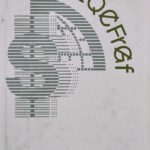
Lietaer B
Financial Management of Foreign Exchange: An Operational Technique to Reduce Risk Book
M.I.T. Press, 1971, ISBN: 0-262-12039-9.
@book{Lietaer1971,
title = {Financial Management of Foreign Exchange: An Operational Technique to Reduce Risk},
author = {Bernard Lietaer},
isbn = {0-262-12039-9},
year = {1971},
date = {1971-01-01},
urldate = {1971-01-01},
pages = {167},
publisher = {M.I.T. Press},
keywords = {},
pubstate = {published},
tppubtype = {book}
}
Lietaer B
Prepare Your Company for Inflation Journal Article
In: Harvard Business Review, 1970.
@article{Lietaer1970a,
title = {Prepare Your Company for Inflation},
author = {Bernard Lietaer},
url = {https://bernard-lietaer.org/wp-content/uploads/2022/09/HBR-Inflation.pdf},
year = {1970},
date = {1970-01-01},
urldate = {1970-01-01},
journal = {Harvard Business Review},
keywords = {},
pubstate = {published},
tppubtype = {article}
}
Lietaer B
Managing Risks in Foreign Exchange Journal Article
In: Harvard Business Review, vol. 12, iss. 3, pp. 25-26, 1970, ISSN: 1522-709X.
@article{Lietaer1970,
title = {Managing Risks in Foreign Exchange},
author = {Bernard Lietaer},
url = {https://onlinelibrary.wiley.com/doi/full/10.1002/tie.5060120314
https://bernard-lietaer.org/wp-content/uploads/2022/09/HBR-Managing-Risk.pdf},
doi = {10.1002/TIE.5060120314},
issn = {1522-709X},
year = {1970},
date = {1970-01-01},
urldate = {1970-01-01},
journal = {Harvard Business Review},
volume = {12},
issue = {3},
pages = {25-26},
publisher = {John Wiley & Sons, Ltd},
abstract = {Where purely monetary matters are concerned, it is the treasurer's duty to see that his company's financial activities abroad are arranged so that devaluation, should it occur, will not mean disaster. Most treasurers have relied on a seat-of-the-pants approach to making these arrangements. Now a computerized model is available that allows the treasurer of an international corporation to take a quick overview of all the many variables that are involved and come up with a highly rational strategy for hedging--one that is both safe and inexpensive, relatively speaking, for his company to follow. [Harvard Business Review Notice of Use Restrictions, May 2009 - Harvard Business Review and Harvard Business Publishing Newsletter content on EBSCOhost is licensed for the private individual use of authorized EBSCOhost users. It is not intended for use as assigned course material in academic institutions nor as corporate learning or training materials in businesses. Academic licensees may not use this content in electronic reserves, electronic course packs, persistent linking from syllabi or by any other means of incorporating the content into course resources. Business licensees may not host this content on learning management systems or use persistent linking or other means to incorporate the content into learning management systems. Harvard Business Publishing will be pleased to grant permission to make this content available through such means. For rates and permission, contact permissions@harvardbusiness.org. (Copyright applies to all Abstracts.)]},
keywords = {},
pubstate = {published},
tppubtype = {article}
}
n.a.
All-America Team of Business Students magazine_article
1969.
@magazine_article{nokey,
title = {All-America Team of Business Students},
author = {n.a.},
url = {https://bernard-lietaer.org/wp-content/uploads/2022/09/Time-1969.pdf},
year = {1969},
date = {1969-01-01},
urldate = {1969-01-01},
journal = {Time Magazine (June 13th)},
pages = {65},
keywords = {},
pubstate = {published},
tppubtype = {magazine_article}
}